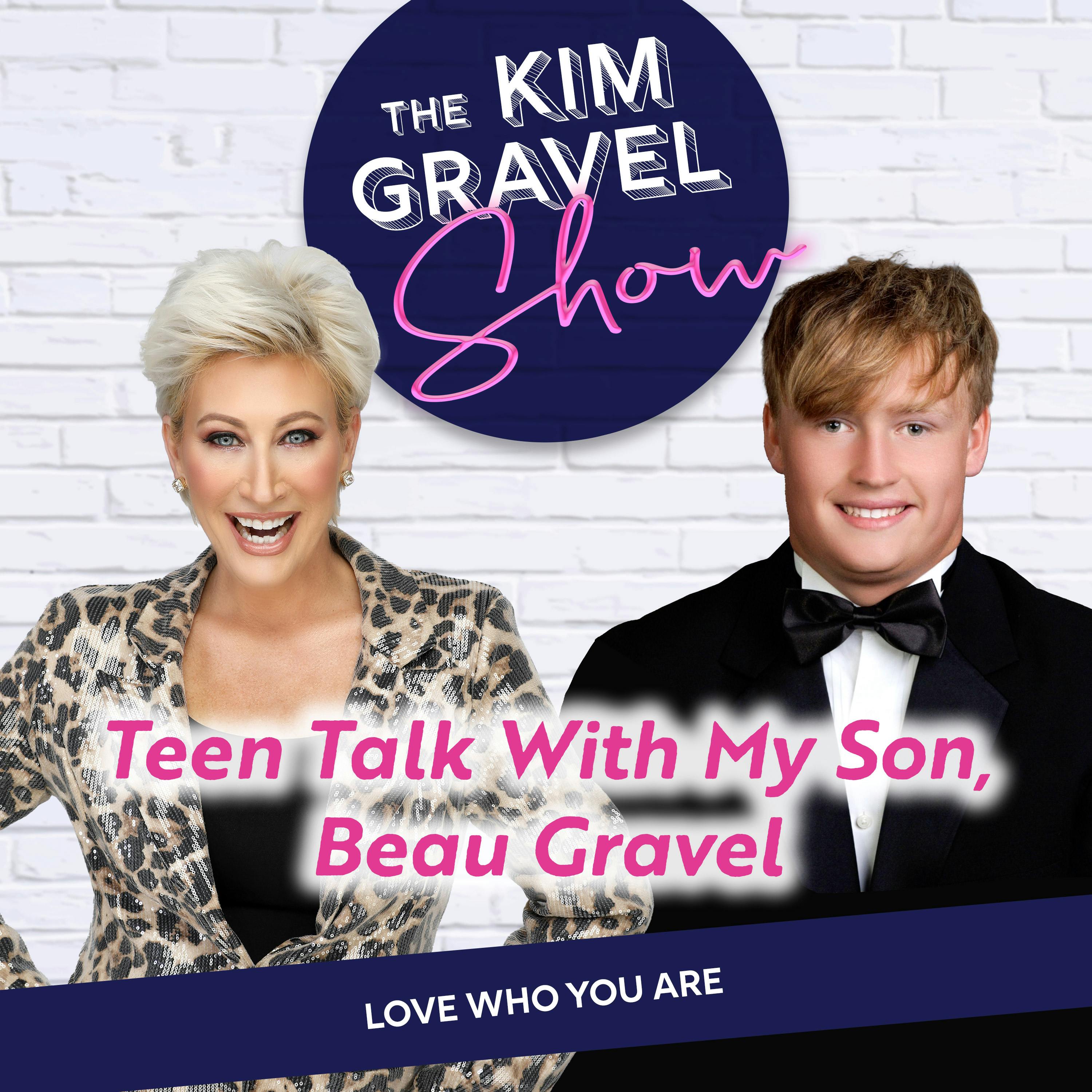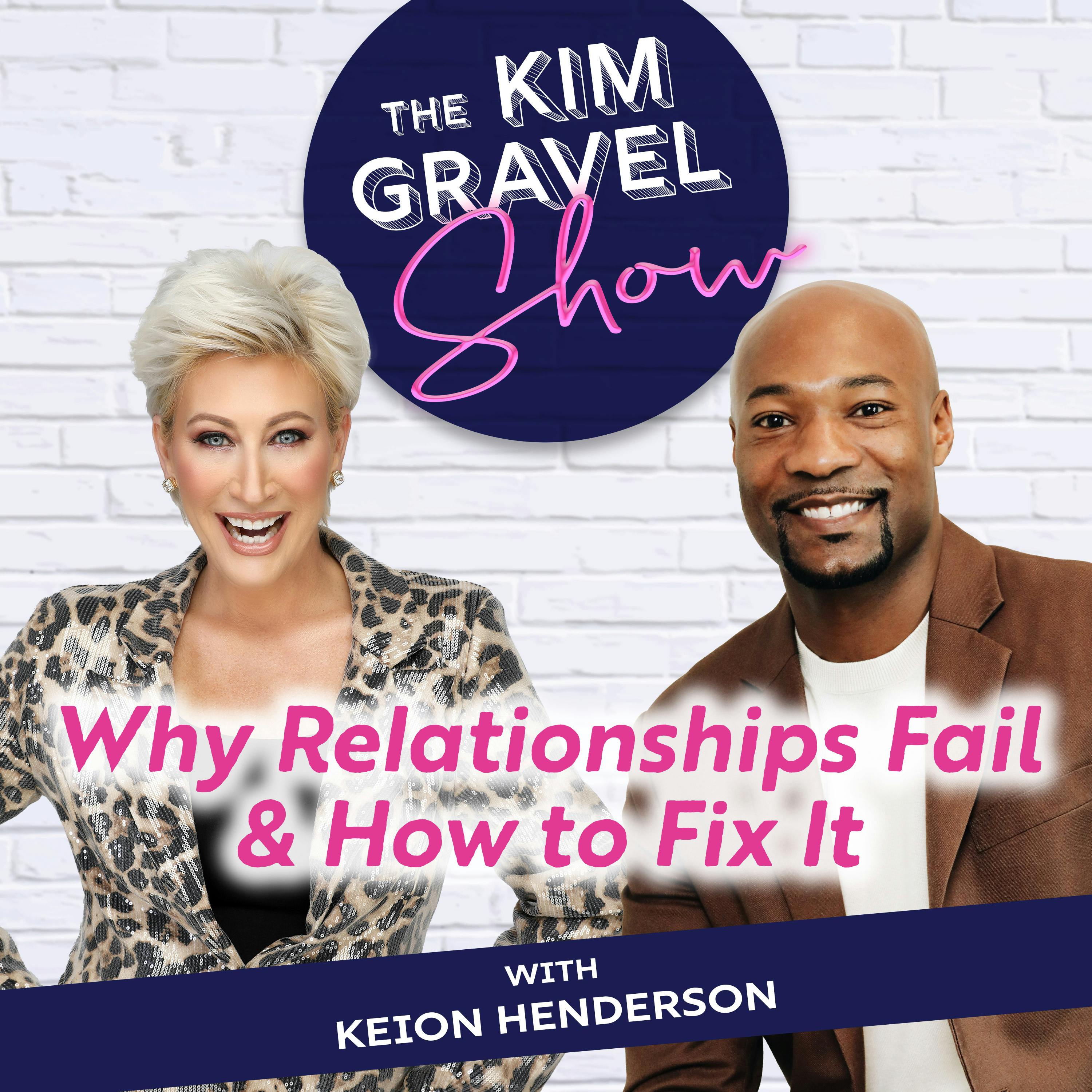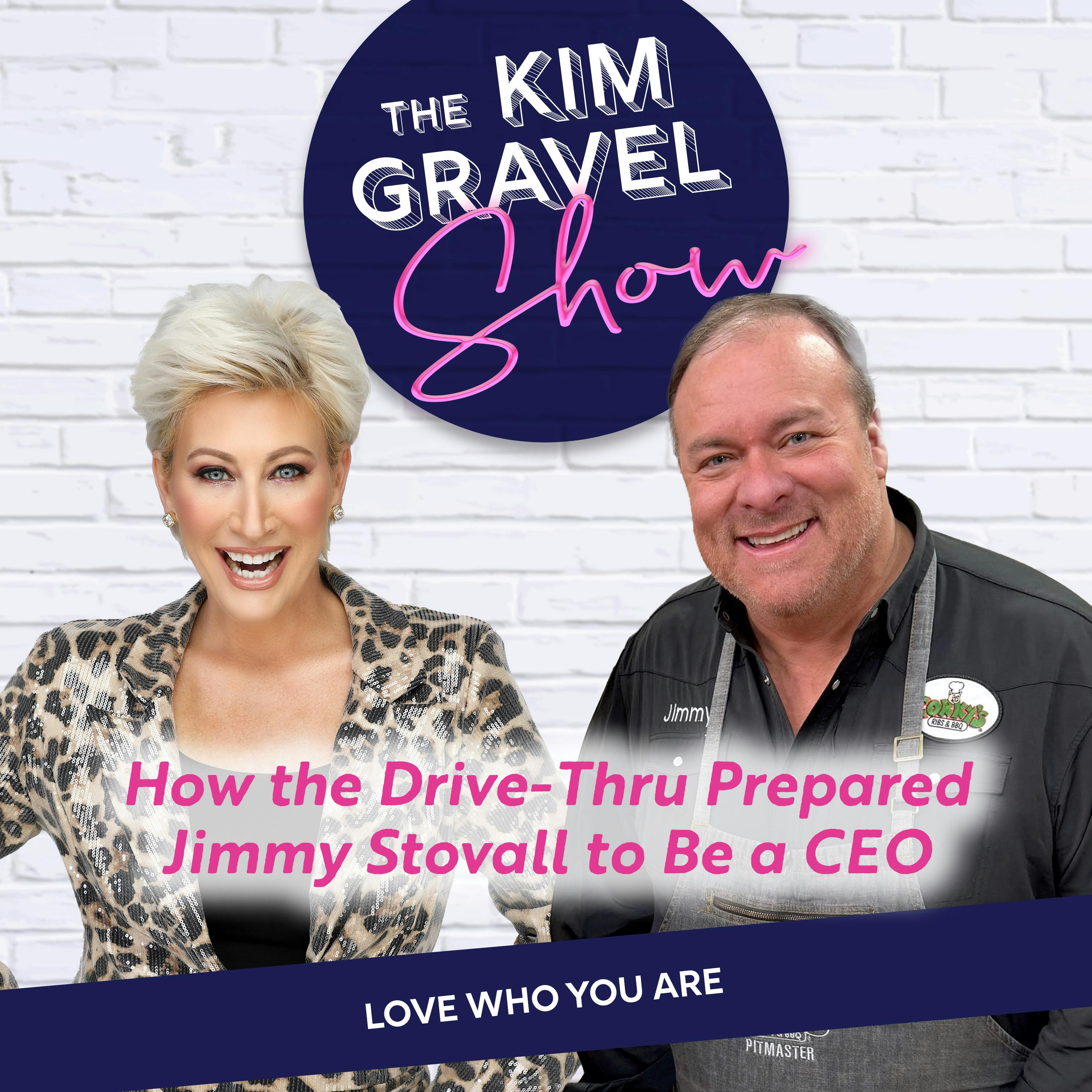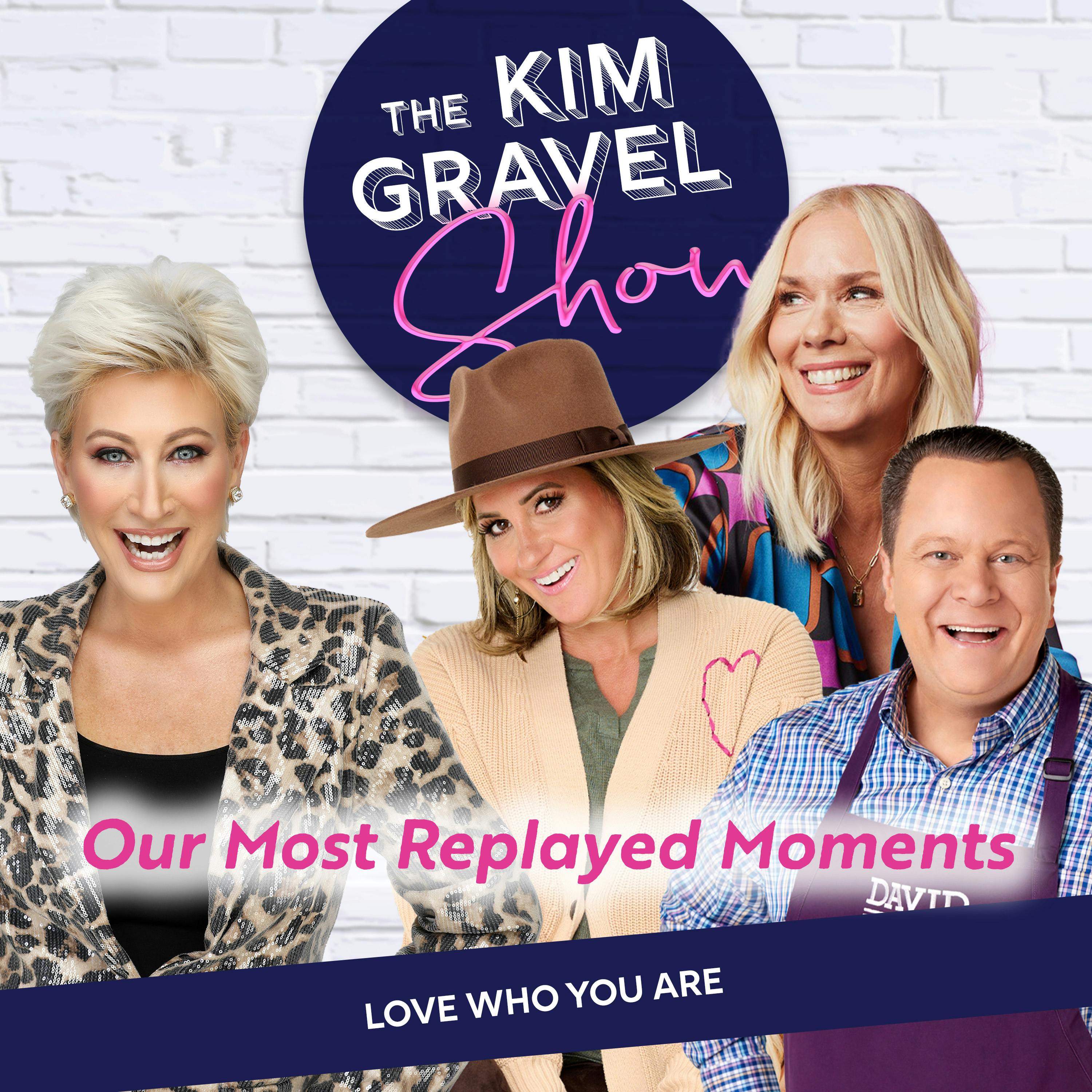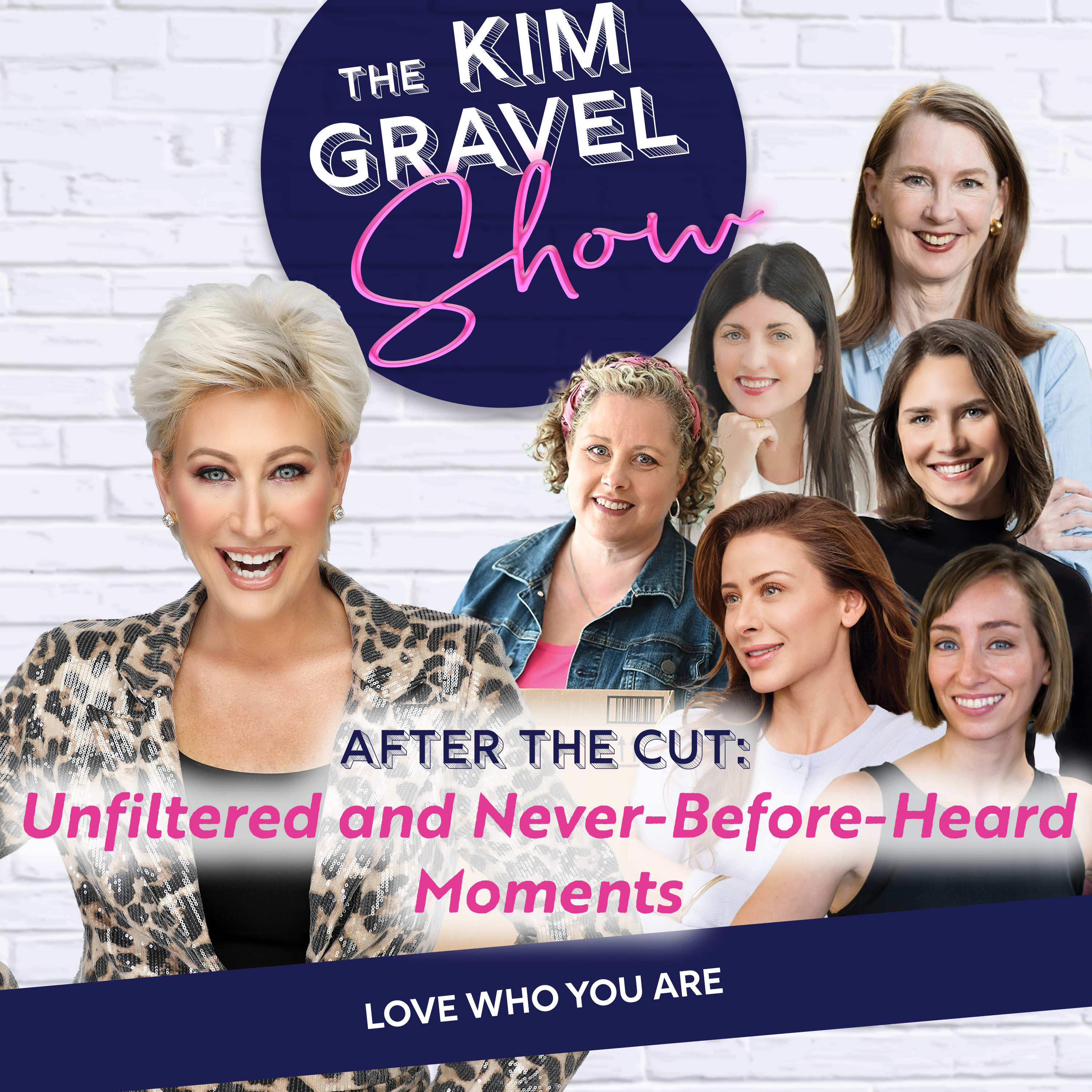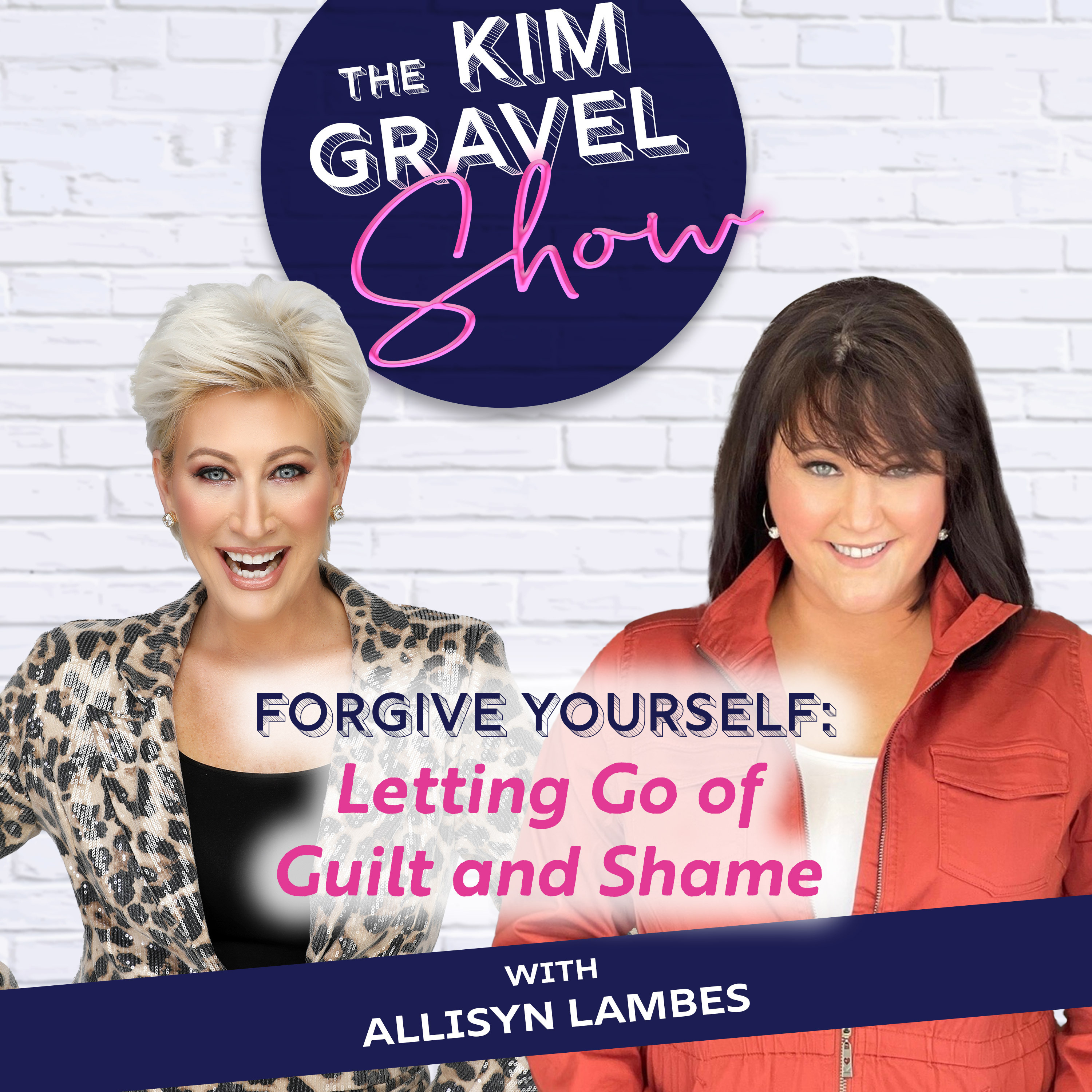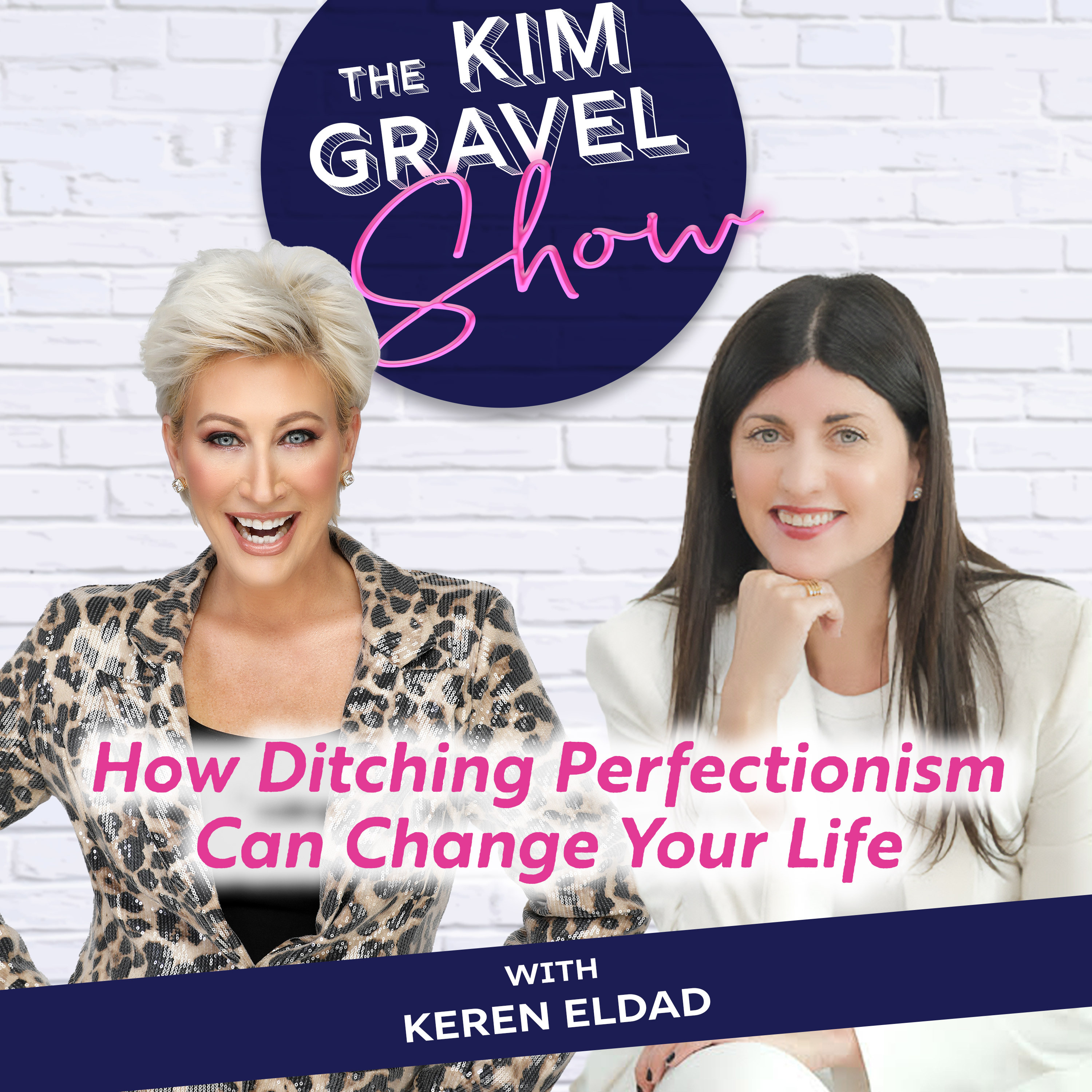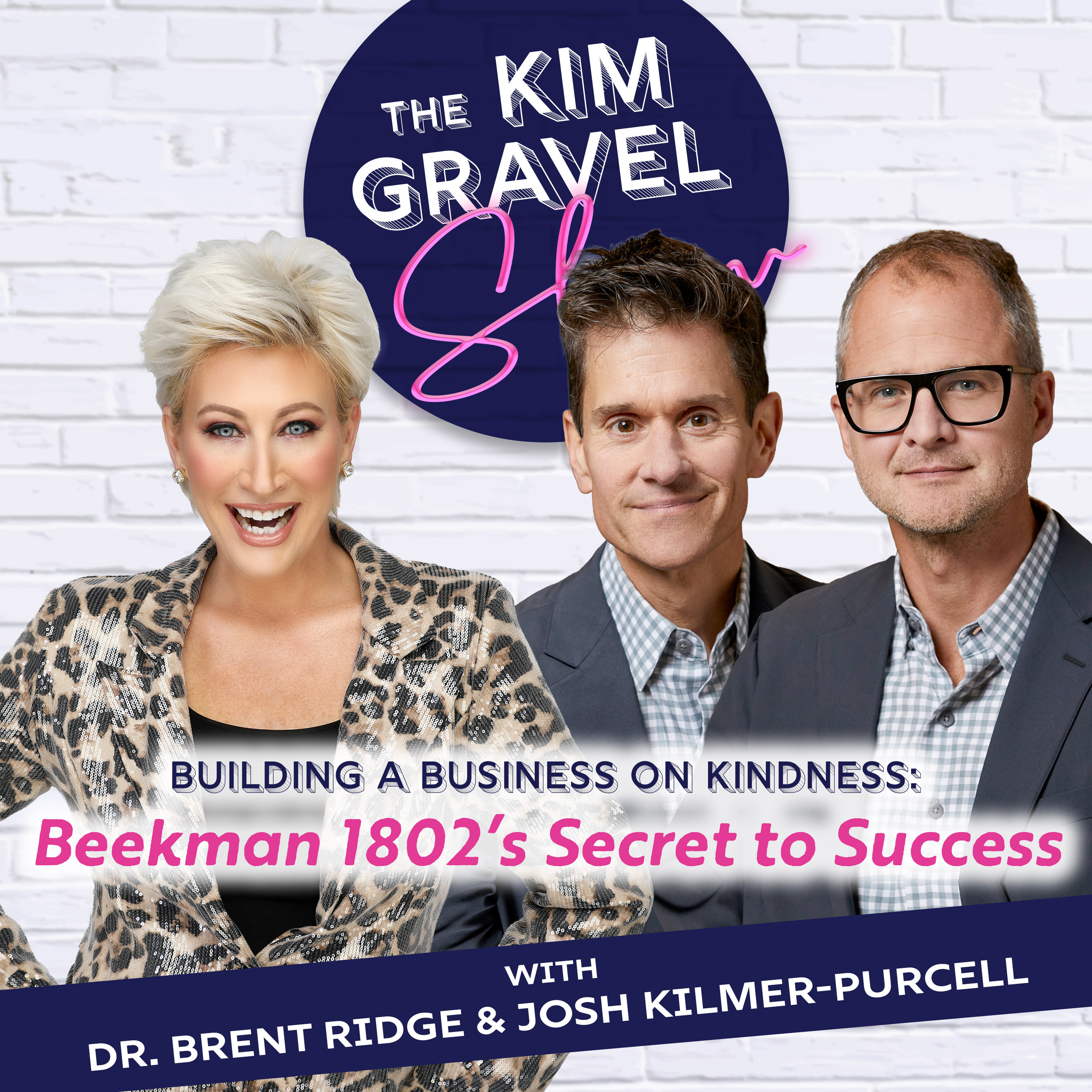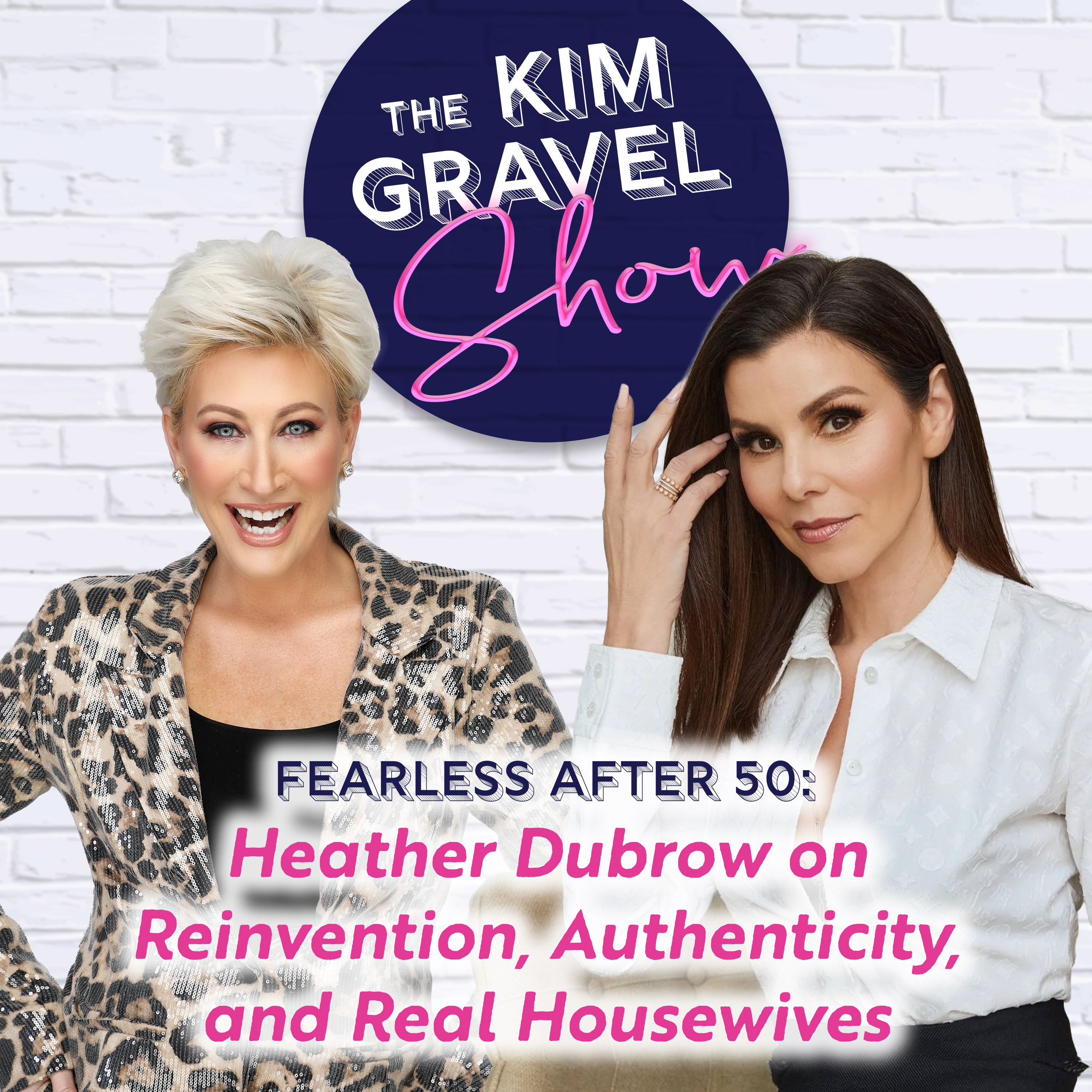Does My Family Have Good Etiquette? Featuring Etiquette Expert Nick Leighton
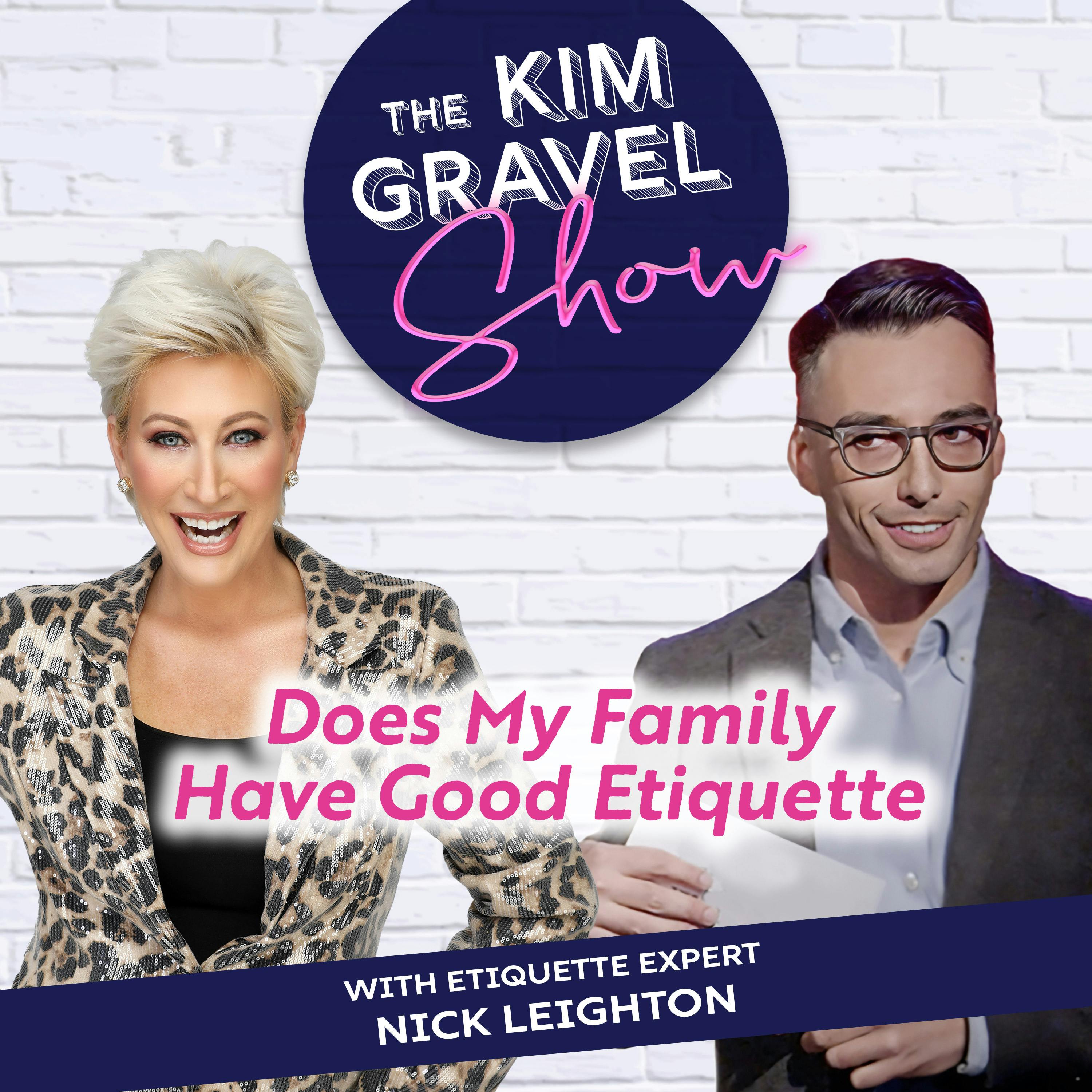
You’ve never heard etiquette questions quite like this
This week etiquette expert Nick Leighton is on the show and he brought some of the most hilarious etiquette faux pas from his hit podcast, "Were You Raised by Wolves?" Amy and Allisyn also call in with etiquette questions about my family, and Nick helps me see etiquette in a whole new way. If you want to learn the etiquette of surprise parties, hugging, telling kids they smell, tipping, family vacations, and public foot touching, then you’re in the right place.
Here is my favorite quote from this episode:
"We live in a society and we have to deal with other people. And so in order for that to work, for the machinery to be lubricated, etiquette is that lubrication. Etiquette at the end of the day is just that other people exist." - Nick Leighton
Listen to Nick's fantastic and hilarious etiquette podcast, Were You Raised By Wolves?
Do you want to hear your voice on the show?
Call me and leave me a voicemail at 404-913-6460 and let me know why you love who you are!
There is BONUS CONTENT in our free newsletter so make sure to subscribe at https://www.kimgravelshow.com
Collecting Confidence, my best-selling book is now available in paperback with a brand new discussion guide!
Click this link to buy it now
Join my Love Who You Are movement at https://lwya.com
Connect with Me:
Connect with Nick Leighton:
New episodes of The Kim Gravel Show drop every Wednesday at 6pm EST.
Support our show by supporting our Sponsors:
Many Hands Project
Many hands is a non-profit that is working to alleviate hunger in metro-Atlanta. 100% of donations to toward buying food and feeding hungry people. Please make a donation here: https://manyhandsproject.org/donate/
Shopify
Shopify is the global commerce platform that helps you sell at every stage of your business. Shopify makes it easy for you to show up exactly the way you want to.
Customize your online store to your style with gorgeous, flexible templates and powerful tools.
Just go to Shopify.com/kim and get a free trial for only $1 per month
FACTOR is America’s #1 Ready-To-Eat Meal Kit. You’ll save time, eat well, and tackle everything on your to-do list this summer.
Head to https://www.factormeals.com/kim50 and use code kim50 to get 50% off your first box! Plus get 20% off your next month while your subscription is active!
*This transcript was auto-generated*
Kim:
Hey, everybody, it's Kim Gravel with The Kim Gravel Show. We've got a. So we got a fun show today, Zac. It's so much fun. It's fun and serious and informative. But, I mean, we're talking about etiquette.
Zac:
I have an etiquette question for you, Kim, to start the show. Before we even bring on our guest, I have an etiquette question for you.
Kim:
Okay.
Zac:
What is the etiquette of cloning someone else's voice? Maybe someone who's the host of a podcast that you produce.
Kim:
Oh, no.
Kim:
What is the cloning saying? What is the clone saying?
Zac:
Yeah, it depends. So I was messing around with AI the other day, and I love AI. I just was curious to see what would happen if I made an AI voice. That's your voice. I made it as a clone from audio clips from you, and I was curious to see what happened if I made it laugh. And this is what I want to share with you.
Kim:
This is my AI laugh.
Zac:
This is your AI laugh.
Kim:
Oh, lord.
Zac:
You can't unhear this. Just for the record.
Kim:
Okay. He. Oh, you know what it sounds like? It sounds like somebody doing breath work or giving birth.
Zac:
It does.
Kim:
And it sounds nothing like I laugh. So.
Zac:
All right.
Zac:
Wait, wait. So that was me writing. Ha ha ha. Over and over again, but with spaces between. If you don't put spaces between, this is what happens.
Kim:
Oh, lord.
Zac:
You're speaking in tongues, Kim, that said.
Kim:
Heifer in there twice. It said the word heifer, which is true. That's more true to what I would say.
Zac:
Oh, my gosh.
Kim:
I love AI. I gotta tell you, I absolutely am obsessed.
Zac:
There are some really interesting things you could do with AI. Now, I will say that.
Kim:
Yeah, a little bit too interesting at times, but, yeah, AI is the future. So everybody don't manage it. Lean into it, embrace it. But there's nothing like the real laugh. Let me do the real laugh. That's my real laugh.
Zac:
That was good. That was. You're like, yeah. Can you cry on Q two, Kim?
Kim:
I cannot.
Zac:
All right, should we start the show?
Kim:
Let's start the show, y'all. We have a great show today. But first, did you know that there's always bonus content in my free newsletter? Zac, people don't know we have a newsletter that we send out every week. I have been responding to listener voicemails, and so has Zac and been putting them in the newsletter. So go and sign up at kimgravelshow.com and if you like the show, please share it with other people, because we want to grow this community of amazing women who love who they are right where they're at. And we want you to be encouraged and lifted up. And we want you to have a real gut laugh, too.
Kim:
Not the AI laugh. We want you to laugh with us. So go to kimgrevilleshow.com, sign up for the newsletter, and enjoy that bonus content. And hey, get ready. Buckle up, baby. Cause we're gonna be learning how to do proper etiquette with Nick Leighton. We'll be right back.
Intro:
This is The Kim Gravel Show.
Nick Leighton:
Would you want to live in a world with no etiquette whatsoever? Insane, bonkers world. That would be.
Kim:
I'm in love with you right now.
Nick Leighton:
I mean, for me, this versus this. I'm comfortable in the same way. Same manners, different etiquette.
Kim:
I don't think I've ever heard it put so plainly.
Zac:
I secretly call a bunch of your family, wow.
Nick Leighton:
I don't know if that's good etiquette. Oh, my goodness. We want to use a tone that is non judgmental and value neutral.
Kim:
Okay? You've just changed my whole life way of communicating.
Nick Leighton:
I think etiquette, at the end of the day, is just that other people exist.
Kim:
All right, y'all. My guest this week is a two time Emmy award winning tv journalist and producer. He has interviewed hundreds of celebrities, but that's not why I've brought him here today. He is here because he is also, get this, y'all an etiquette expert. Yeah. He gonna teach us some things. Today. He co hosts a hilarious etiquette podcast called were you raised by wolves? And I say that in an attitude and as a question.
Kim:
So be thinking about that, which is one of my favorite podcasts. And I'm excited to welcome Nick Leighton. Nick, how is that for etiquette right there? I mean, just write.
Nick Leighton:
If the idea of good etiquette is that you wanna make your guests feel welcome, then you're nailing it.
Kim:
Thank you. Thank you. Okay, we gotta get right into it because there is so much to share. We gotta get it all in. But you've done so much, Nick. Let's just. Can you brief everybody a little bit about your background, who you are, what you've done? I mean, sure, you've gotten around.
Nick Leighton:
Yeah. Wow. I don't know if that's good etiquette, raising it that way. Oh, my goodness. Yeah. You've been around. Wow. No, but I've done many, many things over the years.
Nick Leighton:
So. Yeah, before I got into the etiquette podcast game, I worked in local television for a long time, which was wild and fun. I worked in local television in the Hamptons. And so I worked for a small network, which was sort of like closed access television for rich people. We had station in the Hamptons, Nantucket, Martha's Vineyard, Aspen. And so I did a lot of the event coverage, like the white tent charity events. And so, like, in an average summer, I would go to, like, 80 different charity events. So a lot of hors d'oeuvres.
Nick Leighton:
I also, like, hosted the live morning show, which was wild. Cause that would be like the penguin from the zoo, but also like Edward Albee. So it was a wild time.
Kim:
But how did you get into etiquette, then? I mean, like. Cause that is such. I mean, where are you from? Cause, you know, etiquette. You are from the south. And we were always talking this and that and patch.
Nick Leighton:
Okay, so I am from northern California, and I kind of grew up in, I guess, sort of like a hippy dippy, multicultural, mini commune kind of thing, where we had people from all over the world kind of coming through. Before I was born, my family actually lived in Asia, and so it just had international friends. And so growing up, I was just very aware of just, like, different traditions and cultures. And I've always been very interested in that because etiquette, at the end of the day, is that. And I guess this is a good time to talk about, like, oh, what is etiquette versus, like, manners. And so for me, like, manners are the universal thing. Like, everybody has actually the same manners. Like, we all want to raise good kids.
Nick Leighton:
We all want to be kind. We all want to take care of each other. Like, universally, from Paris, Texas, to Paris, France, we all want. That is the way a different culture will then interpret those manners. And that's what's interesting, because that's very different. Like, it's good manners to not hit people in your car. We agree globally, we all want that.
Kim:
Everybody agrees with that. Yes.
Nick Leighton:
But in Australia, the etiquette is we drive on the left. In the United States, the etiquette is we drive on the right. Same manners, different etiquette. And so I love finding those moments of different ways, different people do the same thing. And to me, that's etiquette.
Kim:
Okay? That is like, I don't think I've ever heard it put so plainly so that people can understand. Cause a lot of people think etiquette is like, what fork do I eat with at the table? I know, right?
Nick Leighton:
I know. Yeah. I mean, and it's not. Not that, but it's so not that, like, that's the least of our problems. Yeah. Like, have you been on an airplane, is the way fork to use the problem on an airplane in etiquette?
Kim:
No, it's if you pass gas, somebody passes gas.
Nick Leighton:
Yeah. I mean, it's like you're clipping your toenails. I don't care what fork you're using. Like, can we not. Can we not be clipping our toenails in.
Kim:
Beyond, I am in love with you right now.
Nick Leighton:
Can we not be doing that?
Kim:
But honestly, has our etiquette gotten worse, though? I mean, has it gotten worse over the years? Cause, like, my kids don't know the things that I know. Even. And, I mean. I mean, here I'm calling myself out on poor parent etiquette. In fact, I've got questions from my family. But answer that question.
Nick Leighton:
Cause I. I think it's a really good question. Cause there is this feeling, like, ugh, it's so much worse now than I remember. But it's never been good. It's never been good. Like, Plato, thousands of years ago, was annoyed when people were talking during, like, a theatrical performance, and he said, oh, maybe we should just hit people with sticks. Or more than 100 years ago, Emily Post, 1922. She was annoyed by young people.
Nick Leighton:
Also at the theater. It's always at the theater talking during the performance. And she's like, oh, y'all should just stay home and just listen to the phonograph if that's what you want to do. Like, don't bother the rest of us. And that was 100 years ago.
Kim:
The phonograph.
Nick Leighton:
There are books in the Renaissance talking about people clipping their toenails in public and, like, how gross that is.
Kim:
That's disgusting.
Nick Leighton:
Right? But, like, we haven't learned nothing. You know, it's the same problems. Like, it's always been not great. So I think just the way it's not been great maybe has changed. And we also can now film it and broadcast it and share it in a way that we couldn't before. So it feels like it's happening more. But I think it's like. I think bad etiquette has been with us forever.
Nick Leighton:
Like, I actually don't think it's actually worse.
Kim:
Well, that's why we need you. Because here's the thing, Kim.
Zac:
So you don't actually know this. I secretly called a bunch of your family and got them to record voice memos. So it's not in the script. Kim, I'm going to play.
Kim:
Oh, no.
Zac:
A few of these I got so, Nick, you have to be. What can we describe? How can we describe your family, Kim?
Kim:
For Nick, who maybe doesn't, I would say their country. Come to town.
Nick Leighton:
Okay.
Kim:
Classy, sassy and country.
Nick Leighton:
And where are they located? Give me a geography.
Kim:
We're in Georgia, honey.
Nick Leighton:
So everybody's in Georgia. Everybody who's written in is in Georgia.
Zac:
Everyone's in Georgia.
Kim:
And very loud and very dominant. Like, we don't have any introverts in the family.
Nick Leighton:
Okay.
Kim:
I feel like. I feel like I'm prefacing. I feel like I'm trying to give you a little disclaimer.
Nick Leighton:
The lady doth protest too much. Okay.
Kim:
A little bit.
Zac:
Let's play this first one. This is Allisyn. So, for the audio listeners, this is Allisyn's voice coming up. She sounds a lot like Kim we've heard on the pod. So just warning everybody. Here she is.
Allisyn:
Oftentimes, when I go to breakfast with my family, and we go every Friday morning, it's like a family breakfast deal. If there's more than me and my husband and my mom and my dad, I will let somebody else pay for it. Is it bad that I only want to pay for it when it's four people versus, like, ten? Asking for a friend.
Zac:
Asking for a friend.
Nick Leighton:
Okay, interesting. So we're going out to some restaurant.
Kim:
Yeah. We go out every Friday morning to breakfast. And so what happens is, when she goes and it's just, like, a few people, she will pick up the tab. Cause we rotate tabs. But when we go and it's like the full family, like, there's ten of us, they make. I pick up the tab.
Nick Leighton:
Okay, so I guess. What's the question? Is that wrong?
Zac:
Yeah. Is it wrong?
Kim:
Is that the rotation? She'll skip the rotation.
Nick Leighton:
I mean. And everybody's noticed.
Kim:
Correct.
Nick Leighton:
Okay. But she clearly doesn't feel bad about it.
Kim:
No, sir.
Nick Leighton:
Okay, well, I guess the question is, do you mind? Because it sounds like you're the one picking up the slack here.
Kim:
Yes.
Nick Leighton:
Okay, so then I think we might need to say something privately.
Kim:
We need to.
Nick Leighton:
Not at the restaurant. Does not embarrass her at the table in front of everybody.
Zac:
Not on a podcast, Nick.
Nick Leighton:
No, maybe not on a podcast. To a global audience. Maybe nothing, but, yeah, I think a polite, yet direct conversation. Hey, I noticed you skipped your turn. Would it be possible next time? I love treating everybody, but I think for fairness, it'd be nice to rotate this.
Kim:
Yeah. I mean, when the bill comes and it's all of us, she's like, oh, my gosh, I love my person.
Nick Leighton:
Well, next time, maybe you'd just be like, oh, you have your purse with you right at the start of the meal.
Zac:
At the start of the meal.
Nick Leighton:
But what would happen if you didn't pay? If you're just like, I'm not gonna put down my credit cards on my turn. What would happen?
Kim:
We would probably have to split it up or I'd get arrested. It'd be one of the two.
Nick Leighton:
Yeah. Okay. Okay. She's bold, though. She's real bold.
Kim:
She's very bold.
Zac:
She's bold.
Kim:
Well, here we go. Very bold, Nick.
Zac:
Okay, we're gonna hear the second. Allisyn Ewan, Boulder. Here we go.
Kim:
She's got two.
Allisyn:
So, listen, y'all, if I went on a vacation to my family's rental home and I got self tanner, let's just say, on the sheets that was not able to be washed out so that they had to buy new ones to replace it, do you think that I should have to pay the $400 to replace it because I was asked on the vacation? This is our family vacation rental home. Or do you think that I should pay for those sheets? And it was more than just one sheet, so it wasn't just mine. I don't know. You tell me.
Nick Leighton:
I mean, this feels easy. Yes. You damage something, you replace it. Doesn't matter whose thing you damaged. If it's a sibling, a parent, a spouse. Thank you. Yeah. You know, and if the homeowner want to be like, no, don't worry about it, then, like, okay, but, like, you definitely leave.
Kim:
Owner is me. The homeowner is me, Nick.
Nick Leighton:
But, I mean, next time, you just put down plastic sheets for her. I don't think she gets a good thread count anymore. Or save those sheets for her. And those are the sheets when she goes there. Oh, my God.
Kim:
There you go.
Nick Leighton:
Probably solved. Those are her now. Those are her. Those are hers.
Zac:
They're just. They're tanned. They have a tanned. I'm picturing, was it like, a tanned imprint of her just in the shot of turn?
Kim:
It's the shot shroud of turn. Yeah, it was the shroud of turn. It was. It was like. Bless her heart. I mean, just like, it was so. It looked just like a bunch of dirt or something worse had gotten on the sheets.
Nick Leighton:
She should. Yeah. And I get that family sometimes we were, like, a little looser with etiquette. I do hope that when she's out in the wild, outside of the family, if something like this happens, she does show a little more courtesy. Cause otherwise, like, she can always come back to your family house. Like, you're not gonna not invite her, but she's not gonna be a houseguest at other places. You know, if you did that to me and you ruined my sheets and didn't offer to pay for them, you're probably not gonna get invited back.
Kim:
But let me ask you something, Nick. If I was to send Allisyn to you for a week's worth of training, would that cost me a lot? Cause it might be worth it.
Nick Leighton:
It would definitely be worth it, though. Oh, yeah.
Zac:
So Amy sent one.
Kim:
Oh, my gosh.
Zac:
This is gift giving related.
Nick Leighton:
Uh oh.
Kim:
She's a person of etiquette, by the way.
Zac:
She is. But it turns out maybe some other people in your family are not Kim. Let's find out.
Amy:
So Jo gets mad at Travis because she says that he always takes his gifts, that she gets him for Christmas.
Amy:
And then takes them back.
Amy:
They get mad.
Amy:
And another thing on that same vein.
Amy:
Is that Allisyn is a big re gifter. So she's always, like, re gifting things.
Kim:
Yeah.
Zac:
So Travis is Kim's husband, and he's returning gifts.
Nick Leighton:
So we give him a gift and he takes it back to the store.
Kim:
Right. Almost every gift. And gets the cash back.
Nick Leighton:
And what does he do with that cash? Buy him something that he does want or he's just like, we don't want it.
Kim:
He's probably just buying gas. He's. He's a person. That is. He's not a gift receiver. He doesn't receive gifts well, okay. Because he's a little. He's a little quirky, and he's very particular.
Kim:
And our parent, my family's just like, tell me what you want. We gonna get it and wrap it up. But when. But it's not just the right thing. He pretty much takes everything back. And then my sister re gifts everything. Actually, there's a gift I gave her that she re gifted it to me, like, a year later.
Nick Leighton:
Okay. Yeah. That's not how that's supposed to go. No.
Kim:
Okay, good. Okay, good.
Nick Leighton:
Yeah. Well, let's talk about re gifting first. Re gifting. A lot of different schools of thought on this. Some people are like, oh, don't ever do it. I think it's fine if you can get away with it, but you have to be able to get away with it. So it has to be a good gift. It has to be something you would get the person anyway.
Nick Leighton:
It can't just be like some extra thing you had in your house. So.
Kim:
Okay. Okay.
Nick Leighton:
We have to start with, like, it has to be a good gift. And then it has to be given to somebody totally outside of the circle because we cannot connect the dots. So you can't give like a gift that you got from Janet in NHR to like, Bobby and accounting, like, no, that's too similar. So certainly within your family, definitely not. Certainly back to you, the giver. No, you didn't get away with it. And you have to make sure it wasn't monogrammed or like inscribed, which happens with books and stuff. So you just have to make sure.
Nick Leighton:
Oh, it's not like some specific thing. But, yeah, I think gifting is fine if you follow the rules and return things. I don't know. I mean, it's polite not to, you know, once that you give a gift, it is up to the receiver to do with that gift as they wish. That's what I'm saying. That's kind of, you know, so if it's just wanted to return it, then that's what that is.
Zac:
How is he receiving it, though, Kim? Because. Sorry.
Kim:
He's receiving it pretty good. And then, but it makes my mother mad because she's like, I'm not gonna buy you anything because you take everything back.
Nick Leighton:
Yeah. Well, then, I mean, I think that's actually something to note. Yeah. You clearly don't like the things I give you and you just want cash. So here's, I guess, cash. I mean, is that, is that what we have to do?
Kim:
That could work. That could work.
Nick Leighton:
That could work.
Kim:
I don't know. They just have that, you know, it's mother son in law and mother in law relationship, which is really special. They have a great relationship. But it is, it is a little.
Nick Leighton:
Surely there's something that he likes or enjoys, an experience, a sports team that he likes. And here's tickets to the game. There must be some road trip y'all are gonna be doing soon. And here's something related to that. Like, I feel like we could get a gift that dials in a little tighter.
Kim:
I know, but Nick, I think he kinda does it to kinda stick it to people too, a little bit. It's his shtick. And so that's where it would be, like, not good etiquette.
Nick Leighton:
That's. Yeah, I mean, to make people feel bad about the gift. Cause the idea of the gift is like, I wanted to do something nice for you, and I wanted to get something that I thought would please you. I mean, that's kind of like what I want as a gift giver. And so it sounds like, yeah, this may not be received as graciously as maybe it could be.
Kim:
I feel like I've been counseling, to be honest with you, Nick, I feel like we need you in our life. What is proper etiquette? Like, is there some rules? Is there a book?
Nick Leighton:
Are there rules? Are there books? Yes.
Kim:
Okay.
Nick Leighton:
Of course. I mean, yes, there's definitely different categories of etiquette. So, yeah, like, there's the books. What fork to use. How do you eat watermelon at a formal dinner party? Like, there's.
Kim:
Wait a minute. How do you eat watermelon? I love me some watermelon.
Nick Leighton:
Don't serve watermelon at a formal dinner party. I guess this is the first time.
Kim:
Okay. All right.
Nick Leighton:
But if you are, I mean, do you really want to know? I mean, if you didn't want to, you would serve it in like, a compote glass. And Amy Vanderbilt, she likes when you serve it with white wine. So you would do that, and then you would probably use a spoon. Although Judith Martin, Miss Manners, she prefers a fork if it's evening. Or use melon baller. There's a lot to talk about with watermelon. But I think etiquette at the end of the day is just that other people exist. That's kind of what it is.
Nick Leighton:
It's just acknowledging other people exist. You exist in a home that has sheets. This family member exists who I want to give a gift card to. It's just acknowledging that other people in the world existed. Etiquette also is a give and take, because I would love to be selfish. Twenty four seven. I would love that. But we live in a society and we have to deal with other people.
Nick Leighton:
And so in order for that to work, for the machinery to be lubricated, etiquette is that lubrication. It's the thing that just kind of makes the machinery work. And so we all have to give a little. All of us have to hold the door at Starbucks. All of us have to return our shopping cart so that the door is held for us, so that there's a shopping cart available for us. And so that's what etiquette is. It's just this give and take that as a society, we've just agreed that's what it is. So all the etiquette rules actually do come down to that fundamental truth.
Nick Leighton:
Even the what fork to use rule comes down to this idea. But that's really, at the end of the day, what it is.
Kim:
Okay, well, let me. Since you said, cause we all exist and that's where to start from. Okay, so I have, I think. What's it called? Zac? It's not mesophilia. What is it called?
Zac:
Yeah.
Kim:
Where sounds and chewing sounds and smacking and just sounds trigger.
Nick Leighton:
Sure.
Kim:
So, like, what? When I'm around someone who's, like, chewing really loudly or popping gum, like, oh, my God. Popping gum sends me into, like, a nervous tic. Yeah. And it's really kind of annoying, especially, like, when you're in tv or you're in close quarters or whatever. And so I always take my ear pods or, you know, earphones and. But when I'm in professional situations where I don't say anything, do you think I could politely just ask someone not to chew loudly, ever? Nick, is that appropriate?
Nick Leighton:
Yeah. Well, I mean, I think etiquette is contextual. So, like, if you are meeting with the CEO of QVC and it's Mac and gum and it's an important business meeting, I think we don't say anything. I think we tough it out. But if you.
Kim:
Which I have before. Which I have before. Just saying.
Nick Leighton:
Yeah. You know? Cause I think etiquette is always about picking your battles. You know, not everything requires us to weigh in. You know, sometimes we just let things go and pretend something's not happening. Like, etiquette also is a lot about fiction and just pretending, you're like, oh, this is not happening. Like, at a theater, when somebody is wanting to pass their seat and their butt is, like, this far away from your face, we pretend that's not happening. You know, on an airplane, we pretend that we're not this close to everybody else when we're having our meal, which is also why you can start your meal before everybody in your row is served. Because it's not a dinner party.
Nick Leighton:
Because we're pretending we're alone, you know? So etiquette is a fiction. So if somebody's chewing gum, can we just pretend it's not happening? But there are times when you want to say something or you can't handle it. And whatever it is, well, I do it.
Kim:
If you're on my team doing it, I'll do it. Like, if I'm in a meeting and I'm on a team, they're doing, I'm like, y'all calm down.
Nick Leighton:
Then it's like, how do you do it? And so I often talk about, we want to use a tone that is nonjudgmental and value neutral, and so that's the tone we want to use. And it's sort of like, if I was going to.
Kim:
What do you mean by value neutral? What did you say non judgmental?
Nick Leighton:
Yeah. So if you're like, oh, is that orange juice? Like, oh, no, this is a glass of water. That's a value neutral statement. I'm not judging you. Why would you think that's orange juice? No, it's just, oh, no, this is not orange juice. This is actually a glass of water.
Kim:
Okay. Oh, that's a good word.
Nick Leighton:
Value neutral, non judgmental tone. So. Oh, would it be possible to spit out your gum? Value neutral. Non judgmental. Nice request.
Kim:
Okay, you've just changed my whole way of communicating. Value neutral. It's just stating facts and asking. Just. That's it.
Nick Leighton:
Would it be possible to spit out your gum?
Kim:
I'm totally using that.
Nick Leighton:
And it's a request. You know, etiquette is also often not a negotiation. So it's sort of like, we'll make the request. If they want to deny that request, then it's sort of like, do you want to push it further or do we let it go? Usually letting it go, depending on what it is. You know, sometimes we just let it go. But, yeah, we always do.
Kim:
You take the responsibility and you say, like, I've got a problem with it. I've got a situate, you know, like.
Nick Leighton:
Well, in psychology, if you give some reason for your request, often it is easier for somebody to agree. I mean, this happens at airports all the time. If you wanted to cut through security, if you're just like, excuse me, coming through, that's not going to be as effective as. Would it be possible to cut. My flight is about to leave and, like, I'm going to miss it. You're definitely going to get more people on board. If you kind of give people a reason. It often happens, like, on an airplane, too.
Nick Leighton:
Like, oh, could we switch seats? Because my child, who's eight years old, is in the other row. So could we swap? You know, sometimes the reason helps. So, yeah, I have this thing where sounds like this really strike a chord. Would it be possible to spit out your gum for this meeting?
Kim:
Oh, I love it. Okay, body odor question. I have teenage boys, okay? They stink. And of course, I have no problem saying, look, go put some deodorant on. But the neighbor's kids, do I say that to them or no?
Nick Leighton:
I mean, it's real hard to parent someone else's kids, right?
Kim:
That's true.
Nick Leighton:
And I think often the answer is, how would you feel if your neighbors did that to your kid? Are we cool with that? Is that the relationship we have or.
Kim:
No, it's a relationship we have because if I've got a booger hanging out or I've got something in my teeth, I want someone to tell me.
Nick Leighton:
Okay, but do you want your neighbors to tell your kids that they smell?
Kim:
If they smelled, I would be okay with it. But I see where you're going.
Nick Leighton:
Yeah. I mean, you know, it could be. The idea is, like, we don't want to, like, etiquette offense. Well, correcting people's etiquette is really reserved for parents or people in sort of a parental role or sort of a mentorship role. So, like, teachers can correct etiquette. A grandparent, certainly neighbors in a community, could have this sort of, like, mentor role relationship. Like, you don't have to be related to somebody to have that relationship with somebody. So if those neighbors do, then okay.
Nick Leighton:
But, yeah, I mean, correcting other people's. It gets sticky. Definitely gets sticky.
Kim:
It gets sticky. It gets sticky. Yeah, I totally get it. How much am I allowed to digitally track my family members? Because we're all on life 360.
Nick Leighton:
Okay.
Kim:
And, like, my nephew, I track him, you know, and he sometimes turns off his permission. Like, is that appropriate? What's the etiquette like there?
Nick Leighton:
Well, I guess it's. What are we doing with this information, Kim?
Zac:
What are you doing with.
Kim:
I don't think it'd be proper etiquette to tell you that what we're doing, we gossip or share or stalk, for sure.
Nick Leighton:
And everybody has the option to turn this off, though, right? So everybody.
Kim:
They do, and he does quite often. Yeah. They opt in. Everybody's agreeing to opt in, but they forget sometimes that they've opted in. You know, they forget it.
Nick Leighton:
Etiquette is local, as we've said. So the etiquette in your family is that we track each other and that's what we do. That's our etiquette. And so I want to ask this.
Kim:
One follow up with that. So, Nick, I will not say who's done this or how they've done it. It wasn't me and my family. So they turned off the permission at the live 360, but this particular person put an apple tracker. So is that appropriate on what?
Nick Leighton:
I mean? Yeah. What do they put the tracker on?
Kim:
Yeah, the car. It's in the car.
Nick Leighton:
Yeah. I. I mean, I think once we get to that level, I think that's. That's above my pay grade. That's. That's no longer.
Kim:
So that's not proper etiquette.
Nick Leighton:
Yeah, I think tracking people without their knowledge. Yeah, I think that's round upon.
Kim:
Yeah, I think that's not me. I didn't do it right hand. I did not. Okay.
Nick Leighton:
But, yeah, no, yeah, that feels. Yeah, I feel like doing things without people's knowledge is. That's. I mean, that's.
Kim:
That's a little stalker. Stalker one night.
Nick Leighton:
Yeah.
Kim:
Okay.
Nick Leighton:
I mean, that also applies to surprise parties. Like, do not throw a surprise party for people.
Kim:
I agree with that.
Nick Leighton:
Like, don't do that.
Zac:
Wait, you're hard.
Nick Leighton:
No.
Zac:
On surprise parties ever.
Kim:
What if someone agree with him on.
Zac:
Surprises and they kind of, like, drop.
Nick Leighton:
If somebody. If you know that person so well and you know that this is gonna be exactly what they want and the guest list that they want and how it's gonna go down, then, of course, have at it. Rare is that.
Kim:
Where's that person? Right, right.
Nick Leighton:
I mean, seriously. And actually, it's never that person who these prize parties are happening for, so. So I think as a general rule. Yeah. I mean, know your audience, but I wouldn't want it.
Kim:
What is dating etiquette? Because a lot of people, like, people are now, like, these apps are insane. Like, how people are, like, plenty of fish match.com farmers, you know, only, I mean, like, that's crazy with the apps. What is the proper etiquette? Dating. When you are dating, you're meeting people on these dating apps, because that is. So many people ask about that. Like, what's your profile picture supposed to be like? You know, you go, like, my friend goes out on dates, and this guy, his picture's great. And his picture was like, 1415 years ago.
Nick Leighton:
Yeah. Well, I think being dishonest is not great. And I think having a photo, that's clearly. I mean, we always want to put our best foot forward. Correct. The photo from 15 years ago is probably pushing it a little bit. Probably pushing a little bit. Like, you don't ever want to walk into the restaurant and somebody be like, not recognize you because it's so different.
Nick Leighton:
But I think we want to treat people with kindness as just a general baseline. I think these apps, because it does feel sort of more abstract, people are just a profile. It's hard to remember, like, oh, these are actually three dimensional humans. I think people are more callous on the apps, and I think that is definitely a problem. I mean, the same thing with Internet comments. You know, people feel like they have license to say wild things about you, about, I get them, we all get them. And it's sort of like, you would never say this to me to my face. No, you would never.
Nick Leighton:
You would never be able to. You would never be able to do it, but somehow you feel totally comfortable in the comfort of your own home doing it. So apps, dating apps, have this flavor, too, which is a little bit of a problem. Ghosting is also, I think, a bigger problem when you meet people through the apps than it is if you meth through somebody. There's a little more sort of accountability. Like, if you're introduced through a friend at work, like, you're probably not going to ghost, because, like, there's going to be a little more accountability to, like, the mutual friend where on the apps, this is way more common. And ghosting, you know, there is a time for ghosting. It's not always inappropriate, but the times ghosting is happening, it's sort of like, that was actually mean and that wasn't necessary.
Kim:
Well, what about. What about etiquette with social media? Because I will tell you, it is. It's a jungle out there, Nick. I mean, it is just, there's so much, like, what is really like, even for young people, how do they navigate social media from this point of view of etiquette? Because, you know, as parents, we're saying, don't worry about, it's just people. But I'm serious. Like, it's causing people, like, they're getting catfished, they're getting blackmailed. I mean, kids are actually, like, have serious anxiety and drama and I. And trauma because of it.
Kim:
Like, what. What is right for people with social media? How should we view that from an etiquette standpoint?
Nick Leighton:
Well, I think I use social media in the way of, like, I deal with the real life, like, real world. So, like, I'm not going to say something on social media. I wouldn't say at a cocktail party, you know? So I think if our online lives matched our offline lives, that would go very far. I think also social media has primed us all to comment and respond. You know, it's always about the review. After every service you get, you get a little survey. It's about reviewing every restaurant. It's about reviewing every hotel.
Nick Leighton:
It's about commenting on everybody's instagram. And we're primed to always respond and comment and weigh in, and I think we don't have to. Etiquette does not require you to weigh in. And actually, no response is a response. And actually, I find not responding, like, if you wanted to, like, make it clear you were unhappy with something, not responding is way more devastating sometimes than.
Kim:
Yeah, because you don't know what the other person's thinking. Absolutely.
Nick Leighton:
Or, like, I don't. This. I. This is out of my mind. I don't, I don't care anymore. And so I think because we're always primed to encourage, always comment, you know, we always feel like our opinion matters, and sometimes it does not. Like it does. We don't need to weigh in on this thing.
Nick Leighton:
The review of the plastic file folders I just bought on Amazon. You don't need to know what I think about these things. You don't need my review for this. But this is what happens at a concert where everybody's watching the concert through their phones. It's just they don't know how to be in the real world. We're just getting more comfortable interacting with the world through phones. And then also at concerts, people are throwing things. Somebody threw their mother's ashes on pink at a concert or threw a skittle at Harry Styles and hit his eye.
Nick Leighton:
So, like, there is this instinct, like, oh, I need to be the main character. Like, I can't just let the person perform on stage. Like, I need to be the main character here. And it's very hard with social media to not be the main character because we're the main character of all of our accounts. So what do we do with this? This is not etiquette anymore. This is just the world we live in. But I think just acknowledging that this is what is happening, I think is a good step to figure out, oh, how do we just treat each other a little nicer and kinder and with more consideration, acknowledge other people exist and are also real people?
Kim:
Well, and I think that's why etiquette's important.
Nick Leighton:
Oh, etiquette's very important. Yeah, no, there's, I mean, there is this. Some people feel like, what is the point? It's fussy. It doesn't matter. It's not relevant anymore. But would you want to live in a world with no etiquette whatsoever? Like, what an insane, bonkers world? That would be, like, total chaos. Like, we need, there needs to be some structure here.
Zac:
Well, it's the little things. You were saying? It's the little things. Like, someone didn't hold the door for me open at daycare yesterday when I was picking up my kid. And this is a door like that. It shuts, and then you have to, like, hit a button and get buzzed in, and it's like a whole thing. And I was livid. Like, I was so mad over, like, a door, right? And it's like, no, the etiquette of this place is you hold the door open if someone's walking behind you, like, yeah.
Nick Leighton:
And it's corrosive, those little things. It's corrosive. You know, not one of these things is gonna, you know, end the world, and no one's gonna die, no one's gonna go to jail, but it's corrosive just chipping away. Like, if nobody sent thank you notes after their wedding for their presents, if nobody did that, why are we getting presents anymore? Then we're done with that.
Kim:
But, Nick, I got that with graduation gifts this year. I mean, very few for the kids that I gave graduation money to. And I, gift cards did not send thank you cards.
Nick Leighton:
That's rude. Yeah, that's real rude. And I would file it away. And the next time there's an occasion to give them gifts, I take that file out, I review that file, and, yeah, I mean, I'm not gonna not maybe send you a wedding gift, but I'm gonna note, like, oh, well, you didn't send me a thank you note for the last thing I sent you. You may not get the good gift this year. I might dial it back. I might dial, you know, it may not be as extravagant I would have if you actually showed any gratitude for any of the things I've done for you in the past.
Kim:
That's just proper etiquette. Yeah. All right. Roaring with Nick. We'll take a quick, short commercial break, and when we get back, Nick has brought some best etiquette questions from his show to ask for our take. So don't go anywhere.
Nick Leighton:
Oh, lord.
Kim:
We got to answer questions. We'll be right back. All right. We are back with Nick Leighton, who is, like, tv producer. He's had his own shows. He's interviewed so many people and is the modern day etiquette expert. Okay, Nick, you said you brought some questions to ask us. Now, let me just tell you.
Kim:
I was Miss George, went to Miss America, traveled the world. And I kind of think, you know, not that I'm the perfect etiquette person, but I've been in situations where my etiquette has been called upon.
Nick Leighton:
Oh, we all have. Yes. Okay, well, so these are some questions that have actually come up in our show. And what is kind of fun about our show is that etiquette is so universal. Like, everybody around the world has, like, etiquette problems. Have stories. Yeah. Globally.
Nick Leighton:
So our global audience has sended amazing questions. So here's a couple. One is, quote, I'm a parent, and have a sticky situation with another parent in our close friend group. Our children are the same age and often interact with each other at school and neighborhood gatherings, my child often extends invitation to my friend's child, which he happily accepts but doesn't reciprocate. We've come to accept this and are not forcing a friendship that doesn't come naturally. However, my friend's child has an elaborate destination birthday party coming up, for which I was asked to co chaperone and assist with transportation. My child is not invited.
Kim:
Are you crazy?
Zac:
What?
Nick Leighton:
I think it was rude for my friend to ask me to attend without my child. I politely declined the invitation by saying I already had plans. However, this isn't the first time a situation like this has come, and I would like to respond without making an excuse. What should I say next time, Nick? Absolute boggers. Totally boggers.
Kim:
No, you should really have that, I think. But I'm a confrontational person, so I would be like, honey, why would I do that? Like, so is there something. I wonder if there's something wrong with that. That friend, that the kid's friendship, like, something's happened there. There's more to that story.
Nick Leighton:
But even, I mean, what do we do with this also? Destination child's birthday party. What does that mean? Are we going to.
Kim:
What kind of. I know, like, for her not to invite her child, but want her to go and chaperone.
Nick Leighton:
Wild. Totally wild.
Zac:
That's insanity.
Nick Leighton:
Yeah. So this is a good example of the type of questions that we get. Yeah, I guess. What do we say next time, though? What's the advice? What would you tell this person?
Kim:
I would just say, respectfully decline. But why would my child not be. Why would you think I would want to go and my child not be invited?
Nick Leighton:
Yeah, I think something along those lines. Yeah.
Kim:
I mean, how would you say it, Nick?
Nick Leighton:
I think we want to make it clear, like, oh, unfortunately, I can't chaperone because my child's not invited. And I think we could say that even more as just a statement because I think you have to decide. Do you want a conversation? Like, are we going to ask the open is, like, open ended question? Do we actually want to engage in, or is it just like, oh, I can't because my child's not invited, full stop? Yeah, but I mean, in the face of this kind of rudeness, I mean, what do we do? I mean, what do we do?
Kim:
I mean, seriously, that is really ballsy.
Nick Leighton:
Right here is a controversial question. My friend wants my recipe for my famous chocolate cake, and I don't want to give it to them. It's sort of my signature cake, and it's something that I'm known for. How do I decline? So how do you feel about sharing recipes? Right.
Kim:
You know, I'm kind of selfish in the fact that I want the recipe if it's that good of a cake. But I also understand where this person is coming from, if that's her signature. She just. That.
Nick Leighton:
What do we do if you really.
Kim:
Want the cake, though, Nick? Cause some cakes are worth it.
Nick Leighton:
And do you want to be that person and be like, no, I'm not gonna give it to you.
Kim:
I don't want to be that person, but I think I would keep special things special. And you know what?
Nick Leighton:
Every.
Kim:
Sometimes you just have to hold a little bit back for yourself, you know?
Nick Leighton:
Okay. Okay. I mean, I feel like. Well, I think we don't want to sabotage. I think one option would be like, I'll give you the recipe, but I'm going to sabotage it, and I'm going to leave something out. Oh, damn it.
Kim:
That's a little dark, but that's rude.
Nick Leighton:
That's bad etiquette, so don't do that. Although many people would be tempted to do that. I think my feeling is, like, I bake a lot. My technique's pretty good. You're never gonna be able to do this cake the way I do it, so I'm not that worried about it. So here's the recipe. I feel like that's kind of my attitude.
Kim:
That is true, though.
Nick Leighton:
There's a lot of other cake recipes I can figure out a different bun cake. So, like, part of me feels that way. And then also, do they really want it? Cause, like, you know, we're always at those dinner parties. We're like, oh, this is so good. Oh, can I get the recipe? And we don't mean it. Like, we don't actually mean it. Right?
Kim:
I'm never gonna make it. I'm never gonna really make it.
Nick Leighton:
I'm just trying to give you a compliment, but I don't really.
Kim:
Right, right.
Nick Leighton:
But, okay. You're just gonna be like, nope, my signature. That's your favorite.
Kim:
I think I would. I think I had a little bit, like, just, like, unfortunately, they can't give it to you. This is just. It's. You know, it's my signature.
Zac:
I think that's okay.
Kim:
I think it's okay.
Zac:
Yeah.
Kim:
I would probably give it, but I would not want to. How about that?
Nick Leighton:
Okay, fair enough. Here's sort of a bonkers situation. Last year, myself and four friends decided that we would make a bit of an effort to go out to cultural events. So far, this has included going to two plays. The first was enjoyable, but the second was so terrible, we bonded over it. After the second play, one member of our group, let's call him Chad, called dibs on choosing the next activity. Recently, I discovered that a musical I'm very keen on seeing is coming to our city. So I invited those friends and some others to go see it.
Nick Leighton:
Almost immediately, someone from the smaller group responded with Chad called dibs. It seems to have shut down the conversation, and no one else has responded to my invitation. So my question is, is there a time limit when dibs can reasonably considered expired? And should the dibs be considered valid when the invitation was extended outside the original group?
Kim:
Oh, my gosh.
Nick Leighton:
Dibs. Let's talk about dibs. Do dibs expire?
Kim:
I think dibs. Yeah, I think it does. I mean, because anybody can just call, like, when you're getting in a car to drive someone, you know, or like, a big car full of people. I call dibs. Shotgun. Shotgun shot. It's immediate. It happens.
Kim:
There it is. Your dib is over. It's done. But to draw out a dib over, like, months, I don't know who remembers it anyway, so.
Nick Leighton:
Well, these people remembered it. Yeah. Yeah.
Zac:
That's. Why do they not want to go? Like, I feel like there's something else going on here. Is someone.
Nick Leighton:
There's always something else going on in these questions.
Kim:
Yeah, but, I mean.
Nick Leighton:
I mean, there's always some other level.
Kim:
But just at face value, Nick. I mean, like, dibs does have an expiration date.
Nick Leighton:
Absolutely, it should. Yes. And also, I mean, can we not do two things right? Like, is it so hard? Like, Chad can still have dibs. He hasn't done anything with his dibs, but, like, you know. Okay, so then we're not. Right, so, yeah. So what should our. What should our letter writer do then? Be like, Chad called dibs.
Nick Leighton:
That's cool. We'll do his thing when he plans it. Anyone want to go to the musical? Right?
Kim:
Yeah, that's what I would do.
Nick Leighton:
Right.
Kim:
Or just say, Chad, is this your dibs?
Nick Leighton:
Okay. All right. Chad, are you going to call and.
Zac:
Okay, yeah, bring him into the park.
Kim:
Make it his idea. You know, sometimes when you. When men. When you make it. Okay, when you make it their idea, it goes a lot better.
Nick Leighton:
Does that really work, though? Is that successful strategy?
Kim:
Sometimes. It used to work for me. Now he's catch. My husband's caught on. So, I mean.
Nick Leighton:
Okay, well, then I'll give you my last bonkers then. Okay.
Kim:
I love a bonkers.
Nick Leighton:
So we have a segment which we call etiquette crime reports. Etiquettecrime.com. comma. You can file one. If you're out in the wild and something insane happens. You want to file an etiquette crime report? We'll take it.
Kim:
Oh, my gosh.
Nick Leighton:
Here. Oh, they're so fun. Oh, my inbox is so fun. So here's one we got, and it is truly buggers. Recently, we were at the airport, sitting in the back of the waiting area at our gate. We knew the flight was delayed, so I got comfortable. I tucked my suitcase under my legs and used it as a footrest. I made sure I wasn't blocking traffic.
Nick Leighton:
And no one was in front of us, just a wall. I was wearing sandals. A grown man walked by, reached down and tickled my toes and said, coochie coo. I was dumbstruck. And my husband was so mad, he almost got out of his seat is what a. It was a did that just happen? Moment. It felt so gross. Who does that? In what world is it okay to touch a stranger's feet? Okay, coochie coo.
Kim:
It's not okay, Nick. It's not okay to do that.
Nick Leighton:
No. Full stop.
Kim:
However.
Nick Leighton:
No, there is no however here.
Kim:
But, Nick, hear me out. Hear me out. If you gonna prop your feet up, stick them up there.
Nick Leighton:
Uh huh.
Kim:
To me, don't you think the coochie coo is a little like, lady, put your feet down. You think that was a passive aggressive, or was it kind of like, a little inappropriate?
Nick Leighton:
I think we can allow that as a possibility. Very charitable, extremely unlikely possibility. But we could put it on the whiteboard, if that makes me feel better about that.
Kim:
Well, let's put this one on the whiteboard while you're putting things on the whiteboard. Like when. When I go to church, at my mom's church, there's a lot of older people, and this is a true story. True story. And so there is this gentleman there that, you know, we always hug and embrace, and normally it's a kiss on the cheek. Okay. But sometimes it's a chase to get a little peck on the lips. Do I just let him just have his moment and enjoy it, or do I keep dodging?
Nick Leighton:
How do you think we dodge? We don't live in a world in which you have to put up with unwanted kissing. No, we don't live in that world.
Kim:
Even if he's an older gentleman, doesn't.
Nick Leighton:
Get what he kisses. No, no. You set boundaries and feel comfortable setting those boundaries. Yes. We don't have to know that's a.
Kim:
Little bit like the coochie coo. That's a little bit.
Nick Leighton:
Yeah. I mean, I think there's. Yeah, this is personal space. We don't touch people who do not want to be touched. I think that.
Kim:
Can I just say. That's hard for me. Cause we're huggers. So, like, I could go, like, I would go, like, to foreign countries and just hug people. That's not what you do. I had to learn that the hard way.
Nick Leighton:
Yeah. Etiquette is local. Yeah. So we want an idea of the personal space. Very different around the world. So.
Kim:
It is very different.
Nick Leighton:
Yeah. When in doubt, keep your distance until you're invited in. Yeah.
Kim:
Got it. Okay. Yes. Coochie coo on that one. Can I just.
Zac:
That foot thing, that was from a recent episode of your show, right. I remember it was, like, fresh in my mind when you started saying it.
Nick Leighton:
I was like, you'll never forget it.
Zac:
You'll never forget it.
Kim:
No, it's. It's a really. People are like. People do not have the etiquette. I want to tell you this, though, about my husband. I have a. I have a. This is a counseling slash etiquette question.
Kim:
So we just had a big fight about this on Monday. So we're talking, like, conversation. Just passing through. We're in the kitchen. This happens all the time. I need you to teach me how to handle this. So he says, I say, oh, my gosh. The end of July.
Kim:
I know. Let's go do the college visits. In this one particular college where my son's going to play tennis, and we're going to go and look at it. And I said, I'd love to go and look at it that week because I'm off. Well, he challenges me. He goes, well, we need to get it applied first. He's always challenging everything I say. And so the first go round, I'm like, okay, yeah, that's cool, but let's make it.
Kim:
Let's make a visit. Let's all go together. He'll challenge me again on something that's just random, has nothing to do with it. It's within the scenario, Nick. But it's, you know, it's not what I'm saying. By the third time he says it, I lose my mind, I lose my temper, I lose my attitude. Goes out the window. Is that okay? Proper etiquette? Cause honestly, sometimes he don't understand what I'm trying to say until I get all crazy.
Kim:
And then I'm like, well, don't get so crazy. But I said it three times, I think.
Nick Leighton:
I mean, that's a relationship question. That's not an etiquette question. But I think there are some etiquette.
Kim:
Did you see how I tried to rope him in?
Nick Leighton:
But there are some etiquette themes that do come up in what you're saying. And so one of the things that I think you can think about is that in etiquette, sometimes when we're bothered by something, if we reframe how we think about it and feel about it, we might feel better about it. So I think in some etiquette situations, you know, if we could just remember, like, oh, this person didn't hold the door open for me at the daycare. Maliciously. This wasn't a malicious act. It was just. They just weren't thinking. And we can sometimes maybe feel better about that.
Nick Leighton:
Like, that. That wasn't about me. That was just sort of like they were having their day in their moment. And so, you know, is this a malicious act of not hearing you? I think that's one way to think about it. And in etiquette, the idea of pestering people and when they've already set a boundary, that is often rude. This comes up at a dinner party. If the host is like, oh, have some mashed potatoes. And you're like, oh, I'm good.
Nick Leighton:
Thank you. And the host is like, no, really, have mashed potatoes. Why aren't you having my mashed potatoes? They're delicious. No, really, I insist. And you're like, no, I'm good. That's not great etiquette, because you set a boundary. It's like, I'm good. Thank you so much.
Nick Leighton:
And somebody just kept pushing that boundary. So I think if wanted to use those etiquette lessons in this, those would be some themes. But etiquette and relationships are actually very different worlds because etiquette is really about behavior. Etiquette doesn't really care about what you feel inside, you know? Now, ideally, your outward behavior will eventually match your inner behavior. These will be the same thing. And so when you're acting nice and kind and polite, you will also be nice and kind and play inside. But if you want to hold that door open for me and smile, but inside, you hate my guts. I'm good with that as a starting point.
Nick Leighton:
Like, you did the thing and you were nice, we'll start there. Ideally, inside, you'll also be nice and polite. But, like, I don't necessarily need that for good etiquette.
Kim:
Yeah, you don't have to have both. Yeah, right.
Nick Leighton:
So etiquette is, you know, like the famous line from into the woods. I was raised to be charming, not sincere. And so, you know, the idea is, like, let's just act politely first. And then ultimately, my hope, my dream for my audience, for the world, is that will also catch us up. Be polite, be kind in our core. But if we could just start with the behavior, then that would solve a lot of problems.
Kim:
Oh, my God. Okay, that was just. You say you're not talking about relationships. You're absolutely right. This is. That is like, you don't feel an act. You act, and then the feeling follows. I love that.
Nick Leighton:
Could be. Yeah. Yeah. But etiquette, at the end of the day is about behavior and how we act.
Kim:
Okay. Okay. Okay.
Zac:
You actually made me think of. I just want to share this because I hadn't. This just popped into my head. This is the best etiquette I have, personally. And it's, like, changed my life, actually.
Kim:
Okay.
Zac:
And I wanna get your take on this. It's so funny. You're talking about mashed potatoes a minute ago. Maybe think of this. So I read that when you're at someone's house eating a meal, they don't notice how much food you put on your plate. They notice how many times you went back for more. So if you intentionally put a lot less food on your plate and, you know, like, knowing I don't have enough food here, I'm gonna go back for seconds, then the host will feel the compliment of you going back and taking seconds and will appreciate that. And I do that.
Zac:
I do that everywhere now. Like, I. If I'm at someone's house, I will take less food than I think I'm going to eat purposefully to go get seconds so that they feel like, oh, Zac really enjoyed it here. Zac really liked the food.
Nick Leighton:
Okay. I mean, that seems like a successful strategy. I mean, the converse is not great. To take more food than you were going to eat and then leaving it on your plate.
Zac:
Yes.
Nick Leighton:
That's not great.
Zac:
Yes.
Nick Leighton:
So, yeah. Okay, then I guess that's a good hack. I mean, a good host will probably notice all of these things, but a good host would never say anything to you. Okay. A good host would never. I mean, it's rude to comment on.
Zac:
People'S taking, like, an egregiously small amount of food. It's not like you're taking.
Kim:
Yeah, yeah, yeah, yeah. You're. Yeah. I just think what I hear you saying, Nick, is that you're putting. And you're putting yourself almost in other people's shoes. When you're practicing good etiquette, it's just treating people as you would want to be treated.
Nick Leighton:
Oh, you crack the code. Yes. That's the whole thing. That's the whole thing, yes.
Kim:
Oh, my God. I knew I was an etiquette expert.
Nick Leighton:
It comes down to having empathy and compassion. Yeah, that's kind of what etiquette is. At the end of the day, it's just like, oh. Realizing, like, oh, if the role were reversed, how would I want this thing handled? And often that's the right etiquette answer.
Kim:
And that's why we need you and need your podcast. Okay. Before I let you go, you cannot leave here without doing the rapid fire questions. We do it with everybody. What comes up comes out. I don't know if that's good etiquette, but these are good ones. These are etiquette. Rapid fire questions.
Kim:
Okay, here we go.
Intro:
Rapid fire questions.
Kim:
Is it okay to let your kids be on screens for the whole meal at a restaurant?
Nick Leighton:
No, I know, but I do it.
Kim:
Do I need, how much rapid fire do we need? You're elaborating.
Zac:
You can elaborate if you want.
Kim:
Elaborate.
Nick Leighton:
I think being at a meal is a social experience, and it is a very important life skill for your kids. And I think everything we do with our kids is about teaching them life skills and giving them tools that they need for the rest of their life. And so it is going to be a very important tool that they can be at a social function, at a restaurant, a meal, make conversation, be polite, be present, make other people feel included. That's really important. And if we're on our phone the entire time, we are going to miss out on that skill. So I think it is important because this is a thing, we all need this throughout our entire life. There's not a time in our lives when this is no longer a thing. And they're going to be on dates, they're going to be in business meetings, they're going to be on interviews.
Nick Leighton:
And so getting practice, this is very important. So, yeah, no screens.
Kim:
Okay. Is it okay to not tip for takeout?
Nick Leighton:
There's a lot of reasons why we tip in the United States. The tipping situation in the United States is completely broken. It's a completely broken system of compensation. And the idea that, like, your wages are based on my whims in restaurants like, this is not a great system. It's not fair, it's not ideal, but it is the system we have. I think if you can, it would be nice to tip. Are you obligated, no, you do not have to. You do not have to tip at takeout when you pick it up.
Nick Leighton:
But I think if you can, I think it's nice, you know, if it's, you know, if a couple bucks to you is not going to make or break you, it would be nice if you would, but it is, it is not definitively required. The same way, like, you must tip 20% in a restaurant if you're dining. Like, that's just like the deal. That's not really negotiable. Takeout. Yeah, if you're picking it up. Okay, maybe flexibility. But I feel like when in doubt, err on the side of generosity.
Zac:
But you're not tipping 20% for takeout, right?
Nick Leighton:
I mean, no, you probably, you're not. You're probably tossing in a couple of bucks depending on what it is, or maybe it's 10% or like something. Or you could do 20%, you know, have at it, you know, but I think it is nice if you can. But tipping fatigue is real. Like these tipping screens that are showing up everywhere. Like, it's totally exhausting. Like self checkout at a supermarket. Now there's a tip option.
Nick Leighton:
Like, who is this for?
Kim:
What is this tipping fatigue? That's a whole episode.
Nick Leighton:
Yeah, no, it's a real big problem.
Kim:
Yeah, it's a big problem.
Zac:
Yeah. You were all talking about tipping, right? That was one of the things.
Kim:
Yeah, tipping is. Yeah, yeah. So where's the wildest place you've ever heard of asking for a tip? Like, I mean, that. The grocery store.
Nick Leighton:
Yeah. I mean, self checkout at a grow a supermarket?
Kim:
That's insane.
Nick Leighton:
That's not a place that we're tipping. Right. I purchased things online. Like, I think I, like, I bought like a sweater or something. And at checkout online, there was an option to add a tip. I was sort of like, surely to who? This is just a configuration issue with your e commerce system, right. But yeah, no, tipping is out of control. And the tipping screens, it gives a lot of people anxiety because you're forced to actually say no tip.
Nick Leighton:
Before you could just ignore the tip jar. Now you actually have to actively in front of the person a lot of the times be like, oop, no tip. That's really hard to do. But I think it would be nice if we actually eliminated tip of the United States and we actually just changed the compensation system where we didn't actually, like, need this, but that would require, I think, like an act of congress at this point.
Kim:
And we know how that's gonna turn out okay. Here we go. Is it okay to use AI to work behind your boss's back or to help you out with your school papers?
Nick Leighton:
I think AI is a tool like anything else.
Kim:
I love AI. I love it.
Nick Leighton:
But I think it's sort of like poetry. You have to know the rules in order to break them. So you have to know the real information in order to use Aih. Like, I've tried AI for etiquette stuff, and, like, it's not always. It's not always correct or, like, what I would recommend. And if you didn't know the real thing, you might just go with that and like, oh, what have we done? So. So, yeah, I think AI is a little tricky. I do not recommend it for thank you notes and things like that, because also, it defeats the entire purpose of, like, writing a thank you note, which is like, thoughtfulness, and then if you suck the thoughtfulness out of the thoughtful act, then there is nothing left.
Kim:
What's the point? What's the point?
Nick Leighton:
Exactly.
Kim:
Okay, what if you find a $20 bill on the floor of Walmart? Do you just keep it or you turn it in?
Nick Leighton:
I mean, I think it's clearly not yours. I think we want to see. Is there anybody around who this might be? Yeah, I mean, I guess, turning in would be, I think, technically the correct thing. Right? Like, if you drop $20, what would you want to have happen?
Kim:
Yeah, but what if that person is long gone? Honey, I'm just like, Travis found dollar 100 bill at a mall. I mean, like, there was nobody there. Who knows how long he'd been sitting there?
Nick Leighton:
Yeah, I mean, I guess. I mean, is that etiquette? Is that ethics? Yeah, I mean, I guess. What's. I guess keep it. I don't know. Do something good with it. Have it.
Kim:
Give me forward, pay it forward. Pay it forward. I love that. That's great.
Nick Leighton:
Okay.
Kim:
Okay. Is it okay to hug somebody you just met? Like, hey, how are you?
Nick Leighton:
As we've discussed. Yeah. I think we gotta read the room. You know, is this a hugger? Is this welcome? Is this a handshake relationship? Is this a bow? Is this. We just node. So I think we want to kind of read the room or see what they go in for first, and then just match what they're doing.
Kim:
Okay. Match the energy. Okay.
Nick Leighton:
Yeah.
Kim:
Is it okay to recline your seat on the airplane? I feel so guilty about it when I do. Cause I hate it when someone does it to me.
Nick Leighton:
Yeah.
Kim:
But then, okay, I mean, etiquette is.
Nick Leighton:
Not about what you can do. It's what you should do. So, like, yeah, you can not hold the door open for somebody, but you should. So, yeah, you can recline. The button is there. It is possible. But should you? So I think the way to determine that is, like, who's behind you? Is this a daytime flight? How long is this flight? Do I really need to? I mean, for me, this versus this, I'm comfortable in the same way. Like, it does not change my life at all.
Nick Leighton:
I do not get. It's not like, oh, so uncomfortable.
Zac:
A scathing indictment of the transportation industry.
Nick Leighton:
Oh, so uncomfortable. It doesn't make a difference in my life. I think before we're boarding, I think if you're real tall and you really don't want the person in front of you to recline, that's a great time to bring that up. Like, hey, I'm real tall. As you can see, because we're all standing right now. Are you planning on reclining during this trip? You know, if so, like, oh, maybe let me swap across the aisle. Or, like, maybe let's move around some seats, or. Or just to put you on notice of, like, oh, I'm real tall.
Nick Leighton:
So, like, if you are going to recline, just give me a heads up first so I can reorganize. And I think before you recline, it's nice to take a look back. Like, oh, do they have their laptop out? Are you going to snap it? Is this meal time? And when you do do it, go slow. I have had a lot of near misses with my laptop where that seat came down real fast and was sort of like, I did think about it. Yeah, you can snap a laptop. Yeah. If your laptop kind of catches under the lip sometimes of, like, the tray table where, like, yeah, there could be damage. So I think we just want to be mindful.
Nick Leighton:
Like, oh, someone behind me does exist. And so, you know, is okay, what is this going to do to their life?
Kim:
I got a good one here. So say you're out, you're at a restaurant or a concert, and you're with your spouse, and you see an attractive male or female. Is it proper etiquette to say something and stare or just ignore?
Nick Leighton:
I'm gonna turn that around. What do you think? Well, what do you think?
Kim:
I mean. I mean, you know, Travis and I have been married for almost, like, 30 years. So for me, I'm like, yeah, get it where you can, honey. You know, but I'm just saying, like, it's probably not appropriate. But, I mean, you know, I think.
Nick Leighton:
Know your audience, but also know how you think you might make that person feel if you're, like, staring at them.
Kim:
Yeah.
Nick Leighton:
You know. Cause, I mean, there's some etiquette.
Kim:
There's couples. There's some etiquette. Cause that's just. Yeah, proper etiquette. There goes a long way. What's the best way to. What's the best way to split a bill when it's a large group of people going out for a meal? Like. Cause it's always like, I know, it's horrible.
Nick Leighton:
I mean, I think there could be different ways to do it. I think it's probably the nicest. If the idea is like, oh, we're all each paying our own way. I think the easiest sometimes is, like, let me put on my card. I will just, like, send you venmo requests.
Kim:
Oh.
Nick Leighton:
And then do it that way. And that's kind of, like, the easiest. Rather than, you know, or we're gonna split it six ways that the restaurant will do that. If we're trying to itemize, though, like, let's not make the restaurant, like, you know, 22, 50 on this card, 3790 on that. Like, let's not do that.
Kim:
Let's just take it and split it.
Nick Leighton:
One person can take responsibility and then, like, oh, pay me back. Better etiquette, though, is I got this time, you get next time. Right? Unless we have a family member situation, which is like, oh, my turn. Oh, we'll skip that.
Kim:
Oh, I missed that day. Okay. I have some normal rapid fire questions. Cause I'm gonna tell you something, Nick. You are. Like, I could hang out with you a lot. You're fun, you're funny, you're smart. You're absolutely good looking, gorgeous, and I can just tell your spirit is amazing.
Kim:
So I'm just gonna ask you some random questions that have nothing to do with etiquette, just cause I'm interested in you.
Nick Leighton:
Okay.
Kim:
Who is the most interesting celebrity you've ever interviewed?
Nick Leighton:
Interesting celebrity? I think Martha Stewart. It was very interview. But I really. When I met her, I was like, oh, I get it.
Kim:
Don't you get it? What do you. Okay, me too. I just met her not too long ago for the first time, and I'm obsessed. What do you mean by I get it? Because I get it, too.
Nick Leighton:
It's that this is a person who really loves the world. She's created the idea of having special wrapping paper for certain things. Vintage linens, gardening shears from Japan, beautiful, intricate meringues. She really, truly, in her core, loves it. It's not a brand it's not a business. It's who she is.
Kim:
It's an experience.
Nick Leighton:
Yes. Yeah. It's 360. And the fact that she is so passionate about just all of these things, I get it. It's like, oh, this is not. It's not an act. This is not facade. This is not CEO and you've created and you fell into something.
Nick Leighton:
It's like, no, you took the thing that you loved and you ran with it and like, oh, should we all be so lucky? So, yeah.
Kim:
I want to sit down and just have 30 minutes with her. I told her I'd pay her. I said, I just want to just talk to you for 30 minutes.
Nick Leighton:
Ultimately, to make dinner party guest. Yeah.
Kim:
Ultimate.
Zac:
That would be stressful, though. Wouldn't it be stressful to have Martha over?
Kim:
No, I think she would be very gracious.
Nick Leighton:
Yeah. Because she's got great etiquette, and etiquette is about making everybody feel good. And I bet her dinner parties are chill. Actually, probably pretty casual. And, yeah, if you don't use fork, who cares? Yeah.
Kim:
Yeah. And yummy. Yeah.
Nick Leighton:
Yeah.
Kim:
Oh, she got good taste. Oh, my gosh. Meats good.
Zac:
I love that.
Kim:
Okay.
Nick Leighton:
Yeah.
Kim:
If you could invent one thing right now, what problem would you solve it with your invention?
Nick Leighton:
I would invent a thing that makes people say thank you. I would invite some device that gave you an electric shock. If you don't, some device that just made everyone say please and thank you. I love that. So that would. I think if we could achieve that, then I would win a Nobel Prize.
Kim:
For peace, and we would make a ton of money doing it, too. Okay. What advice, Nick, would you give to your younger self?
Nick Leighton:
Ooh, good question. I think the best advice, it is actually something that I heard during my high school graduation. This was like, you know, we think about, like, oh, the commencement address, and, like, oh, who remembers what that was, except, like, oh, wear sunscreen, which is good advice. Very good advice. During my commencement in high school, basically, the theme was that don't wait for something to start your life. There is this idea that, oh, once we get to high school, okay, then we begin now with college. Oh, no, once we graduate from college, well, then our life begins. Once we get our first job, once we get married and all these milestones and the bar just hits, and it's like, no life.
Nick Leighton:
It's happening. We are in it. Life is actually happening. Let's not wait for something in the future to begin. And that really stuck with me because it's like, oh, it's now. This is now currently happening. So I really do. I'm not waiting for anything in the future to get going on anything.
Nick Leighton:
It's like, go down, and life is currently happening to me.
Kim:
Just do it.
Nick Leighton:
Just do it.
Kim:
What is your favorite junk food? Sweet and salty.
Nick Leighton:
Oh. So I actually grew up in, like, a vegan household, and so I did not grow up with a lot of sugar junk food. I've actually never. I've never had Pepsi. I've never had a cheeto. I've actually never been to Walmart. And so I, you know, there's a lot of life expectancy. I am american.
Nick Leighton:
I am an american citizen. But there's a lot of life experiences that I've just never had. I've never been to a Burger king. A lot of things that haven't happened to me. But I do. For sweet, in terms of mass produced junk food, I really do like peppermint patties. I think there's something about peppermint patties. Oh, my God.
Kim:
I love peppermint patties. Yes. They're cool and refreshing.
Nick Leighton:
And then for salty, I really do like a sour cream pringle. I feel like that is a really well balanced item. And then just for a bonus, it's a crunch.
Kim:
It's the crunch.
Nick Leighton:
I love an orange gina, because it's. I don't know. Can you buy them in a store? I've only seen them in, like, random restaurants or delis. I don't know if you could commercially buy orange eater, because who has orange eating in their house right now? Nobody. But we do like it. We do like it as a society.
Kim:
I'm gonna go, I gotta try that. An orangina.
Nick Leighton:
Have you never liked orangina?
Zac:
It's orange soda, right? Isn't it just a twist?
Nick Leighton:
Yeah, it's orange soda. Yeah, yeah, yeah. All right. Twist. Something you haven't had. Yeah.
Zac:
That is a twist.
Nick Leighton:
I get that.
Kim:
Okay. Who is your celebrity crush right now?
Nick Leighton:
Well, right now I'm really deep into Judith Martin, who is Miss Manners. So she's a celebrity. The more you learn about this woman, because she's Miss Manners. The famous Miss Manners. Like, she crashed, like, the Nixon daughter wedding. She. Like, she was, like, front row for MLK's I have a dream speech. Like, she's like, her life.
Nick Leighton:
I mean, as a journalist, she's really amazing. So I kind of crush on her pretty hard for other celebrities. I mean, there's so many amazing people that I'm in love with. I'm in love with, like, Maya Rudolph right now. She's really.
Kim:
She's hilarious.
Nick Leighton:
She's kind of doing it for me, her new show. But sometimes you need different celebrities for different things. It's like different flavors.
Kim:
Okay. What show are you binge watching right now?
Nick Leighton:
My tastes go very high. Low. So we're fancy and so. Sure. A documentary about Michael Heiser and moving a boulder to Los Angeles. Contemporary art. Yes. But I love Island.
Nick Leighton:
I love Love island.
Kim:
Oh, my gosh.
Nick Leighton:
It doesn't get lower than that. And I do not apologize. I don't apologize. And so I prefer Love island, Australia. That's kind of my go to. The seasons are only, like, 30 episodes instead of 60 episodes. Love Island, USA, I hear, is very good this season. So I'll have to dip in, but.
Nick Leighton:
Oh, yeah. No, we love a good, trashy dating show. Yeah.
Kim:
Okay. Okay. So you have highs and lows. I love it. All right, Nick. I just love you so much. You have to come back, y'all. You can connect with Nick Instagram at Nick.
Kim:
Nicholas. That's his full name, Nicholas Leighton. Or on his website, nicklayton.com. and make sure you subscribe to his podcast. Were you raised by wolves? And I have to say it like that. Were you raised by wolves? It's so much fun. And you're gonna love it. Nick, thank you for coming.
Kim:
You are so. How can I describe this?
Nick Leighton:
Please. I got all. I have a lot of time. Yeah, you are.
Kim:
You are. I don't know. I would say you're very unique and very flavorful.
Nick Leighton:
Okay, I will take that.
Kim:
Is that proper etiquette now? Rice compliment?
Nick Leighton:
Yes, absolutely. Always.
Kim:
And if we were in person, I might try to kiss you on the cheek, but I would not go in for the mouth. That's not proper.
Nick Leighton:
Okay. At least not the first time. Not the first time.
Zac:
It sounds like he's okay with it. It sounds like Nick's.
Kim:
Like he's okay. His favorite show. One of his favorite low shows is Love island, so.
Nick Leighton:
I know. Yeah. We can go to the hideaway. Absolutely. Let's do it, Kim.
Zac:
Oh, my God.
Nick Leighton:
Let's do it.
Kim:
All right, y'all gotta check Nick out. Check him out. You got to download the podcast. You were raised by wolves and let's go. It's hilarious and fun and informative. So till next time. Love y'all. Bye, Nick.
Nick Leighton:
Come back.
Kim:
Bye, y'all.
Zac:
I've been done, like, five minutes and we're out, so let's do.
Kim:
I love you.
Zac:
Okay. I love you too Kim.
Kim:
It was a $50 gift card.
Nick Leighton:
It doesn't matter what it was okay.
Kim:
Hit the cha ching, Zac. Hit the cha ching. There you go. You wanna do it again?
Zac:
Oh, that was so fun.
Kim:
Oh, my God, Nick, you are so. You are a riot.
Nick Leighton:
Likewise. This was a blast.
Kim:
The Kim gravel show is produced and edited by Zac Miller at Uncommon Audio. Our associate producer is Kathleen Grant from the Burnett exec, production help from Emily Breeden and Sarah Noto. Our cover art is designed by Sanaz Huber at Mammarian Creative. Our show is edited by Mike Kligerman. Our guest intros are performed by Roxy Reese. Our guest booking is done by central Talent Booking. And I want to give a special thank you to the entire team at QVC, and thanks to you for making this community so strong. Listen, tell somebody about the show and leave us a five star review.
Kim:
The Kim Gravel Show is produced and edited by Zac Miller at Uncommon Audio. Our associate producer is Kathleen Grant at Brunette Exec, production help from Emily Bredin and Sara Noto. Our cover art is designed by Sanaz Huber at Memarian Creative. Our show is edited by Mike Kligerman. Our guest intros are performed by Roxy Reese. Our guest booking is done by Central Talent Booking. And I want to give a special thank you to the entire team at QVC+, and thanks to you for making this community so strong. Listen, tell somebody about the show and leave us a five star review. And make sure you're following The Kim Gravel Show on your podcast app so we can keep growing this love who you are message together. I can't do this without you. So thank you so much for listening. And y'all, I love you with everything I got.








